
- Conditions for participation
- Special loan
- Full Exclusive Program price
- 5 biggest misleads
- Job Locations
- Interviews With Employers
- Job Positions
- Hilton Head Island
- Amelia Island
- Traverse City
- Lake George
- Cedar Point Experiences
- Free English Language Course
- SERFSAFE course
- Health Insurance
- DS 2019 form
- Social Security Number
- I-94 formular
- About Program
- Types and prices of the program
- Types of camps
- Necessary documentation
- Living in the camp
- Program Offer
- Full Program Price
- Self Program Price
- Pay 0$ for the program
- Program payment
- Employer for Full Exclusive Program
- Location for Full Exclusive Program
- Job positions for Full Exclusive Program
- Accommodation for Full Exclusive Program
- About the program
- Necessary Documentation
- Campus Locations
- Accommodation
- Requirements for participation
- Jobs and Locations
- Application Documents
- Host/Hostess
- Waiter/Runner
- Server/Kitchen Help
- FULL PROGRAM PRICE
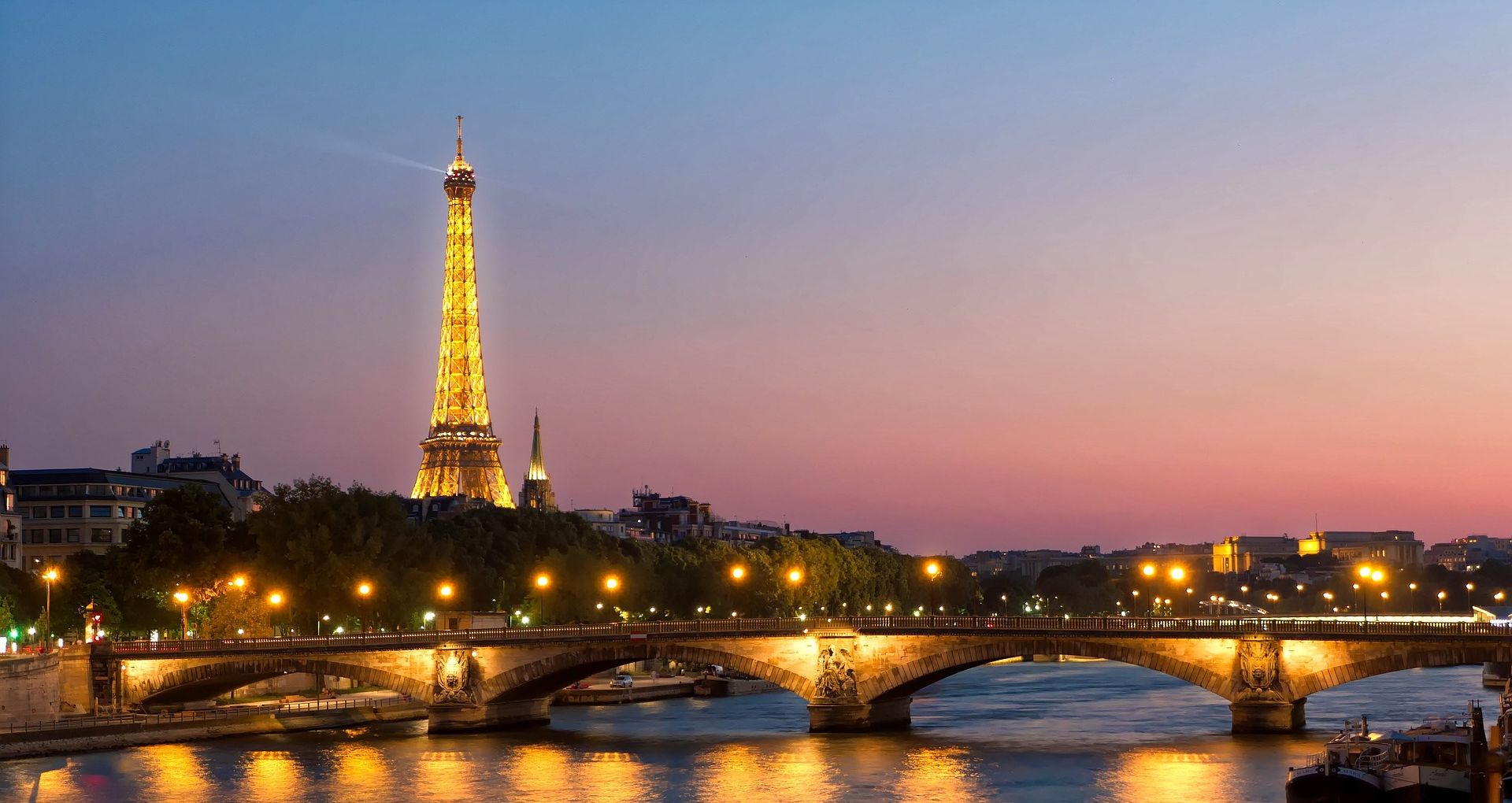

WORK IN FRANCE
About program.
WHAT IS WORK IN FRANCE PROGRAM?
The Work in France Program is offering the possibility for young students from 18 to 26 years old to get a professional experience in France. It is also a great opportunity to improve their French language and to enjoy the French way of life! Through a pool of more than 300 employers located all over the country, we offer jobs in various areas: catering, hospitality, cleaning and services. They are entry level jobs accessible without special training. Program length: 8-12 weeks.
YOUR PARTNER IN FRANCE: CEI is a non-profit organization founded in 1947 with the goal to build bridges of understanding and peace through education. With more than 70 years of experience in intercultural and educational exchanges for children and adults alike, CEI has become world-renowned for providing quality international programs for foreign students who wish to work, travel, study or discover France, its culture and its language.
REQUIREMENTS FOR THE PARTICIPATION
All the participants have to be on one of the years of the regular three-year, four-year, five-year, master or Ph.D. studies A potential participant has to be on at least B1/B2 level of French language (every student will be interviewed by the program manager) It is recommended for the studying to be continuous Participants must be be between 18 and 26 years old To be flexible, ready for the team work, cooperation and compromise Candidate has to be competent for work To possess a valid passport which lasts at least until the program end
JOBS AND LOCATIONS
GUARANTEED JOB PLACEMENT: Paid Job placement for a minimum of 2 months before arrival for Visa holders and Work Authorization holders; upon arrival for European applicants. Jobs are located in Paris or in any other city in France. It is accessible to any student with a first professional experience.
Restaurants – Servers, fast food cashiers, kitchen help, dishwashers Hotels – Front desk, housekeeping, room service Stores – groceries, clothes, supermarkets Rezortovi -cathering, animation, housekeeping, combined positions Cleaning companies
Paris: Bastille and Les Champs Elysées. Morzine Vierzon Trouville Orcières Montgenèvre Alleyras etc.
APPLICATION DOCUMENTS
A valid passport Student booklet Proof of student status ISIC card Birth certificate translated into French
Housing is either provided by the Employer, or with the help of our partner in France. Students usually live in dorms with shared rooms and lots of amenities. Housing price is 420-650 EUR per month. Some of the apartments in Paris where students usually stay while on the program are: Foyer Tolbiac, UCJF Anne Marie Véder & Naples, AEPP.
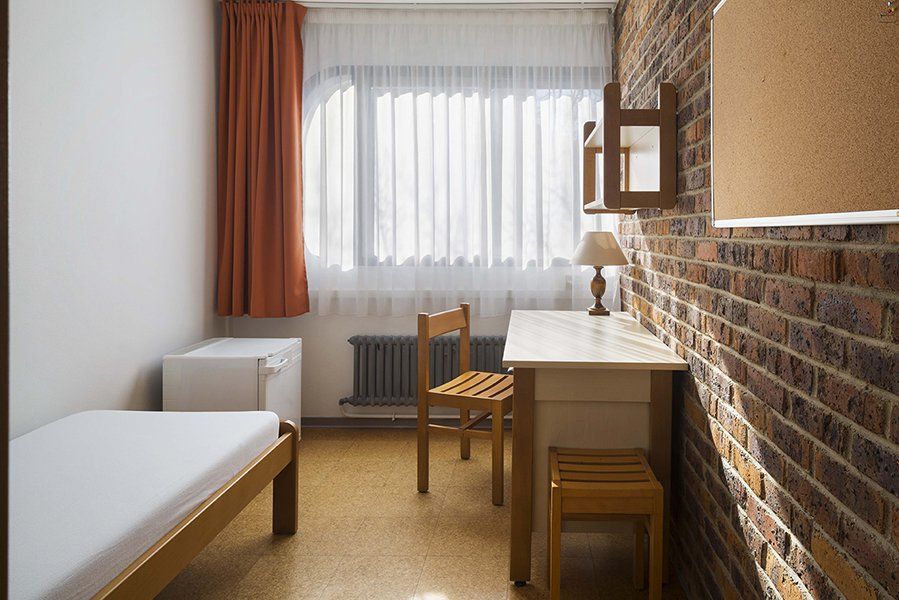
- O kolačićima
- Striktno neophodni kolačići
- 3rd Party Cookies
Ovaj veb sajt koristi kolačiće kako bismo vam pružili najbolje moguće korisničko iskustvo. Informacije o kolačićima se čuvaju u vašem pretraživaču i obavljaju funkciju prepoznavanja kada se vratite na naš veb sajt i pomažu našem timu da razume koje delove veb sajta smatrate najzanimljivijim i najkorisnijim.
Striktno neophodni kolačići treba da bude omogućeni u svakom trenutku kako bismo mogli da sačuvamo vaša podešavanja kolačića.
Ako onemogućite ovaj kolačić, nećemo moći da sačuvamo vaša podešavanja. To znači da ćete svaki put kada posetite naš veb sajt morati ponovo da omogućite ili onemogućite kolačiće.
Ova veb sajt koristi Google Analitiku za prikupljanje anonimnih informacija kao što su broj posetilaca sajta i najpopularnije stranice.
Omogućavanje ovog kolačića nam pomaže da poboljšamo našu veb sajt.
Molimo prvo omogućite strogo neophodne kolačiće da bismo sačuvali vaše postavke!

- How to – guides
- Skills List
- How to – guides
- North America
- South America
Work and Travel in France
Help us grow. share what you know about getting work in france for travellers., volunteer and paid work opportunities in france for travellers.
Quintessentially European, France is the most visited country in the world, with 89.4 million tourists visiting in 2019 alone. Vacationers are consistently attracted to the beautiful language, gourmet food, and diverse landscapes. Not surprisingly, then, this country is rife with opportunities for those looking to work and travel in all seasons. You should easily be able to find work that matches your skillset and earns you a great experience. Read below to discover our travel guide to working and travelling in beautiful France. 1. Help out at a hostel or B&B If you have skills in hospitality, you can choose your own adventure here, since France supports tourism for both high- and low-end customers. You can either work at a backpacker’s hostel in a city such as Paris where you’ll be meeting loads of international travellers and find yourself hosting game nights or cooking classes. Alternatively, you can cater to more affluent tourists at a luxury B&B in Normandy or the south of France. 2. Muck in at an organic farm in Provencal France has arguably the biggest proportion of organic farmland in Europe. If you have farming or gardening skills or want to get into that industry, working at a farm in southern France, a region known for growing herbs and vegetables, is the place you should head in the spring, summer, and autumn. 3. Help refugees in Calais For those looking to get into the humanitarian field, an impactful and insightful way to help refugees on the front line of the refugee crisis all year round can be found through working within the refugee camps in Calais. You will get to know those forced to flee their countries, providing much needed social interaction and support.
VOLUNTEER WORK VISA / PERMIT REQUIREMENTS FOR FRANCE
EU nationals and citizens of Iceland, Norway and Switzerland need only a passport or a national identity card to enter France. For tourists from around 60 non-EU countries, visas are not required for stays of up to 90 days. This includes citizens of the USA, the UK, Australia, Canada, Hong Kong, Israel, Japan, Malaysia, New Zealand, Singapore, South Korea and many Latin American countries. For stays of more than 90 days, contact your nearest French embassy or consulate and begin your application well in advance as it can take months. Other people wishing to come to France as tourists have to apply for a Schengen Visa. It allows unlimited travel throughout the entire zone for a 90-day period. Apply to the consulate of the country you are entering first, or your main destination. For more Visa information, see here.
SEASONAL BACKPACKER SKILLS NEEDED IN FRANCE
Spring work.
Springtime sees the return of sunshine to all parts of France. This is an ideal time to arrive in France, as you can look around and secure work before the crowds descend for the summer resort season. Head to the south for organic farm work in Provence, the north to get set up on a grain farm (although be aware it will still be cold up there), or go west to work on preparing an apple orchard. Your options for work and travel are plentiful in the springtime in France.
SUMMER JOBS
Campsite jobs are offered by the hundreds by tour operators looking for people fit enough to withstand some heat and heavy lifting. Head to Bordeaux for grape picking or remain in Provence for the olive harvest. Summer is the boom time for the luxury resorts along the French Riviera. You could find yourself working as a chambermaid or yoga instructor along the beaches in Nice, Cannes, or Saint-Tropez if your skillset matches the particular need.
The resort cities in the south of France have longer tourist seasons than up north, so there may be an opportunity for you to extend your summer seasonal work into the Autumn. If restaurant serving or bartending is within your skillset, then in late August head to large university cities in such as Nantes or Beziers, whose large student populations frequent Irish, Aussie, and British bars. They’ll certainly be looking to employ English-speaking staff, and this is a great way to improve your French.
The French Alps are synonymous with Chalet culture and après -ski, so head here to snag lucrative jobs as a ski/snowboard technician, chalet chef, or a nanny for couples looking to spend more hours on the slopes. Once you have a season of working in the French Alps behind you, you’ll likely be able to find a job at any other ski resort in the world next year.
ATTITUDE TO FOREIGNERS WORKING OR VOLUNTEERING IN FRANCE
France is one of the most modern and highly-developed countries in the world. It has one of the largest economies, and the country is a leader among European nations. France has a large and diverse immigrant population, so you should be able to blend in pretty easily no matter where in the world you come from. There’s a culture of foreign backpackers coming to volunteer in France, so you’re not going to experience any problems in that realm. Just bear in mind that many French do not speak English or prefer to use their own language even if they understand other languages. Don’t start a conversation in English, try to speak French even if your language knowledge is limited. Are you ready to start planning your work and travel adventure in France?
Recent Contributors
- Edited on Jun 2 2021 by
If you have worked in France or live here. Instead of saying `That information is not right` Please sign up to Working Traveller by clicking here and update this page with your opinions on the subject and your views on what the barter points should be. If your a host, you will have a SEO link added to the page directly to your own web site so viewers can see who provided the information. If you are a traveller it will link to your profile.

- Montpellier
- Basse-Normandie
- Champagne-Ardenne
- Franche-Comte
- Haute-Normandie
- Ile-de-France
- Languedoc-Roussillon
- Midi-Pyrenees
- Nord-Pas-de-Calais
- Poitou-Charentes
- Provence-Alpes-Cote d'Azur
- Rhone-Alpes
WORKING TRAVELLER LTD 27, Lonsdale Rd, Blackpool, FY1 6EE, UNITED KINGDOM
Work and travel the world using your skills to gain work experience and references for a good job back home
Log in with your credentials, forgot your details.

9 Paris Apps You Need to Download Before Traveling
Are you looking for the best Paris Apps to help you to navigate the French capital? That’s smart because using apps for Paris is your secret weapon to counter the language barrier, unfamiliar streets, and the maze of Metro lines.
And these are only a few examples on how downloading the best Paris Apps can lift your Paris experience to the next level.
But what are the best travel apps for Paris? Look no further because in this article, I have you covered. I am presenting you with a list of the 9 most useful and popular apps for Paris.

Salut, I am Lena – travel planning expert and parisienne since 2006 🩷
If you purchase through links on this site, I may earn – at no cost to you – a small commission. This helps me cover my costs and keep my website running. Thank you so much for your support 🙂 Learn more
CHECKLIST for your Paris Trip
- Get a Travel Adapter
- Book your airport transfer
- 🚨 Get Travel Insurance
- Buy your SIM card in advance
✔ Hotel booked?
- Budget: Hotel France Albion (8.6)
- Midrange: Hôtel des Arts (9.6)
- Upscale: Millésime Hôtel (9.2)
✔ Tickets booked?
- Eiffel Tower ( book here )
- Louvre ( book here )
- Versailles ( book here )
And these Paris apps are not only great according to me!
I asked my favorite Paris travel community ( It’s free, join here ) about the applications that they found most helpful during their time in Paris, and what can I say? They delivered.
Having a right combination of apps on your phone is your secret weapon for navigating the City of Light like a local.

Whether you’re a first-timer aiming to easily navigate Parisian or a seasoned traveler looking for local gems, these apps will certainly enhance your experience.
Tip: Stay online while traveling! Roaming fees can be a nasty surprise when using your smartphone abroad. And they often remain unnoticed until a hefty bill makes an unwelcome appearance after your trip.
The Solution? An eSIM ! Safeguard your wallet by planning ahead and buying the data package you need, for an ease of mind and no surprise bills. See all data plans here .(they are cheaper than you might think)
The 13 Best Travel Apps for Paris
So, without further ado, here is the shortlist of the 13 best Paris apps according to locals and travelers.
#1 Google Maps
Google Maps is your Swiss army knife for exploring Paris. It’s more than just a navigation app . In fact, it’s my go-to Paris app for all sorts of things that I use every day.
Whether I need to know the best Metro or Bus connection , search for a spot to have lunch or simply want to know if my favorite Cocktail bar is open. I can be sure Google Maps has the answer.
If you are not keen on Google, Maps from Apple works as good. It’s just a matter of preference, but know that one of the two will absolutely be enough to find your ways around Paris.
My Google Maps Tip: Create Lists
Create lists with locations you want to see or restaurants you would like to eat at . This way, you find them back on the map. You can even share this list with your travel partner, so everyone can add their favorite spots.
My husband and me, for example, have a shared list on Google Maps with restaurants we stumble upon and want to eat at. It’s very helpful and a great way to organize our favorite addresses and make sure not to lose them.

Viable Alternative: CityMapper
City Mapper is a great navigation app for Paris because it connects the usual map and navigation function with external services: Uber, Vélib, Bolt and many more.
Offline Alternative: Maps.me
If you would rather not depend on mobile data or get a eSim Card , maps.me is a great app for downloading apps and then use them offline later on.
Good Read: 5 ways to get from the Airport to Paris
One of the most popular apps for Paris regarding transportation is Uber. If you are not familiar with it, it’s the easiest way to get a taxi, just that it’s not a taxi, it’s an Uber.
You type in your destination and your location, and the app calculates the price of the trip and connects you with a driver.
It’s safe and uncomplicated, and also easy in terms of payment. The price that is calculated before ordering your ride is the price you pay. No surprises. And: You can simply pay through the app .
If you use Uber already in your hometown, no need to download it in Paris. It’s international.
Alternatively, you can use Bolt or G7.
Bolt is the big competitor of Uber in Paris, and it can be worth it to compare prices. Depending on the demand, the difference can be huge. They often give you a few discount codes upon signup.
G7 is the transport app in Paris for the official Taxis Parisien . The difference is, that the price is only calculated throughout the journey, not before.

Get €10 off your restaurant bill by signing up here
is a wonderful app in Paris to find and reserve a table in a restaurant . The app is in English, reservations are online, and you can choose among hundreds of eateries.
Regularly they have promotions if you book through the app, like 20% off the bill, or the 2nd dish free.
It’s certainly worth it. For an extra €10 off your bill, use my code .
#4 Bonjour RATP
Download for Android | Download for iOs
RATP is the company that runs the public transportation in Paris: Metro, Bus, RER and Tram . And while I think for navigation purposes this app is rather useless because Google Maps has you 100% covered, you still should get this app.
Also interesting: How to use the Metro in Paris – The complet guide
Because: You can use the Bonjour RATP App to buy and top up your Navigo Travel Card . No need to stress out over vending machines anymore. Simply pick the ticket option you like, select your payment method (credit card or other) and top up your card.

You can also use the Bonjour RATP app to read your Navigo Travel Pass to see how many tickets you have left.
➲ Read my guide here on how to rent a Vélib in Paris
If you intend to explore Paris by bike , then the Vélib app is absolutely necessary. It holds all your account information and access codes, but most importantly, it shows you how many bikes are available at the closest station. And: in which state they are.
Because through the Vélib app, you will be prompted to rate the bike you got, and it’s a very valuable indicator for the next person.

#6 Google Translate
If you don’t speak French, a translator app is of course a no-brainer. And Google Translate is doing the job just fine. Maybe you won’t win a literacy price with it, but it will provide you with a translation that gets the job done.
Google Translate Tip: use the Camera
Google Translate has a camera function. Instead of typing in the word you want to have translated, open the camera and let Google Translate let do the work for you.
#7 Google Lens
Google Lens is my favorite app when traveling abroad to a destination, where I don’t speak the language. Especially, when I can’t read the language.
Google Lens is the image search tool from Google . You can take a picture of a sight or painting, or anything really, click on Google sense, et voilà, all the info you want.
But, and here it’s getting interesting: you can combine Google Lens with the translator app, and this means that the written word will be translated for you.
Works perfectly with menus in restaurants , simply take a picture of the menu and click translate.
#8 Flash Invaders
Also read: Best Fun things to do in Paris with Teens
Flash Invaders is one of my favorite Paris Apps. Ok, it has very little to do with travel planning, but it is a fun app that I suggest you look into. Especially if you are traveling to Paris with kids or teenagers.
Like in a real time video game, you can hunt down space invaders all over Paris, get points, create a collection and compete with your friends.
But… what are Space Invaders?
Invader art in Paris refers to the work of an anonymous artist known as Invader , who places mosaic pieces inspired by the 1978 arcade game Space Invaders around the city.
These pieces are recognizable by their pixelated and fun designs, mimicking video game characters. Invader’s mosaics can be found on all sorts of buildings, bridges, and any kind of surface, really, across Paris.
Turning the city into an open-air gallery with almost 1500 installations scattered all over Paris.

The app is simple: When you see a Space Invader in Paris, open the app and flash the mosaic, hence, take a picture of it using the app.
Depending on the size of the mosaic, you get points and the app shows you when the piece was installed. Some date back to the early 90s.
It’s a fun app, and it encourages you to look around and discover more than you normally would.
#9 ICI Toilettes
Worried about where to find a public restroom in Paris? Then you need to get this app.
It shows you on an interactive map where to find the nearest toilette and even the best (and fastest!) way to get there. It covers public toilets that you find all over Paris, but also restrooms in parks or along the Seine.
Voilà, these were the 9 most useful apps for Paris that you should download before heading to Paris. If you know more, please share them with us in the comment section.
For the ease of mind and to avoid hidden fees, I recommend getting this eSim card from Airalgo for your mobile phone – it’s a simple solution to stay connected throughout your trip.

Parisienne since 2006 🩷
Expert in: Parisian Life &
French Culture, Travel
Planning, Crochet & Food and Drinks
Join me on Facebook for updates and news about Paris.

Must Have Paris Travel Essentials
International Travel Adapter

Order here from Amazon
Portable Charger for your Phone

Pin this post for later ↓

Similar Posts

What NOT to do in Paris -23 (costly) Paris Mistakes you need to avoid!

Paris Bound? Tick Off These 8 Essentials First

5 Paris Sights to Book in Advance – and 5 NOT to

ETIAS Travel Authorization: Do You Need It for Paris?

Power Outlets in Paris: Do You Need an Adapter? (Quick Guide)

How to Learn French – 23 Tips to Progress
- Meet the Team
- Our Manifesto
- Work with Us
- Budget Travel
- Personal Development
- Work & Travel
- United Kingdom
- More of Europe
- Philippines
- More of Southeast Asia
- More of South America
- More of Central America
- South Korea
- More of Asia
- More of North America
- New Zealand
- Pacific Islands
- More of Oceania
- South Africa
- More of Africa
- More of the Middle East
- Travel Essentials
- Travel Gear
Home » Europe » France » Everything You Need to Know about Working Holidays in France | 2024
Everything You Need to Know about Working Holidays in France | 2024
For many people, especially those who can’t get enough of exploring new countries and cultures, working holidays abroad are a kind of rite of passage. I’m sure we all know someone (or have at least heard of someone) who left it all to road trip across sunny Australia or chase mountains in beautiful New Zealand. These both sound like a dream for sure, but, have you ever considered taking a working holiday in France?
It may sound unusual, but there are plenty of working holiday jobs over there, plus, who can resist that French charm?! You could be walking along the banks of the Seine, or sipping wine in a vineyard in Bordeaux… better yet, you could spend your weekends perusing les boulangeries for freshly baked baguettes and delicious croissants.
Does this sound like heaven to you? Because it sure does to me! All of this and more is possible when you take a French working holiday . To learn exactly how, keep reading!

Do You Want to Travel FOREVER??
Pop your email in below to get a FREE copy of ‘How to Travel the World on $10 a Day!’.
Taking a Working Holiday in France
Top 5 tips for a working holiday in france, france working holiday visas , insurance for a working holiday in france , working holiday in france budget, earning money on a working holiday visa, pre-planned working holiday jobs with global work and travel, diy working holiday in france, final thoughts .
- Buy Us a Coffee!

The Broke Backpacker is supported by you . Clicking through our links may earn us a small affiliate commission, and that's what allows us to keep producing free content 🙂 Learn more .
The France working holiday visa is the best way to get into the country and be able to work (and play) while you travel. If you’re a citizen from an eligible country, and are aged between 18 and 30 (35 in some cases), you can apply! This kind of trip isn’t limited to gap year students , but is perfect for a wide range of people. From young professionals who want to take a break, to newly graduated college students, the sky’s the limit!
The French working holiday programme is ideal for those who want to explore France , and experience life abroad long term when you don’t have the funds for a year-long vacation (how I wish). You’ll be earning real euros working a real job, but on your days off you’ll get to party it up in Paris, whiz down the slopes in Chamonix, and bask in the sun on the beaches of Cannes. Working holidays strike a fine balance between work and play, and if that means you get to travel and work for a whole year, why the hell not?
There are a whole load of options for work in France, like being an au pair, tutoring English, or working in resorts and hotels over the ski season! Moving to a new country can be daunting… that’s why we’re so lucky in this day and age that the blessed internet exists to link us up with some great companies.
Go with Worldpackers
Worldpackers is an online company that connects travelers with foreign volunteer hosts who then work in exchange for housing . That being said, Worldpackers does do more than just connect volunteers to hosts. It offers a plethora of additional resources, a great support network, a blogging platform for collaboration, and a whole lot more.
Sounds pretty rad, right? But wait, there’s more!
According to their mission statement, Worldpackers is “ a community based on collaboration and honest relationships that make travel more accessible to those seeking a profound cultural experience. ” They value environmentalism , authenticity , growth and working together above all else and make a great effort to provide the best experience possible.
And even better – Broke Backpacker readers get a special discount of $10 ! When you use our special hookup, it makes even more sense to pay. Just use this Worldpackers discount code BROKEBACKPACKER and membership is discounted from $49 a year to $39.

Worldpackers: connecting travellers with meaningful travel experiences.
Go with Global Work and Travel
One of our absolute faves when it comes to working holidays are Global Work and Travel . These guys take care of all the little details and can provide some extra support during your trip!
It’s got a bit of a different approach than Worldpackers, but it offers JUST as many amazing opportunities for travellers.
It provides working holidays, teaching abroad, volunteering, au pair and student internship packages . On top of that, the agency plans, sorts and assists with visa requirements, connections to local businesses, accommodation search and job interviews.
Most products even come with flights and basic medical insurance, a 24/7 Emergency line and payment plans.

Now, the France working holiday visa isn’t on the table forever, the clocks ticking! If you’re on the fence, just do it!
Now, what are the ins and out you need to know about working holiday jobs in France? Is it as easy as just stepping off the plane, hitting the pavement, and getting a job? Eeeek, if only!
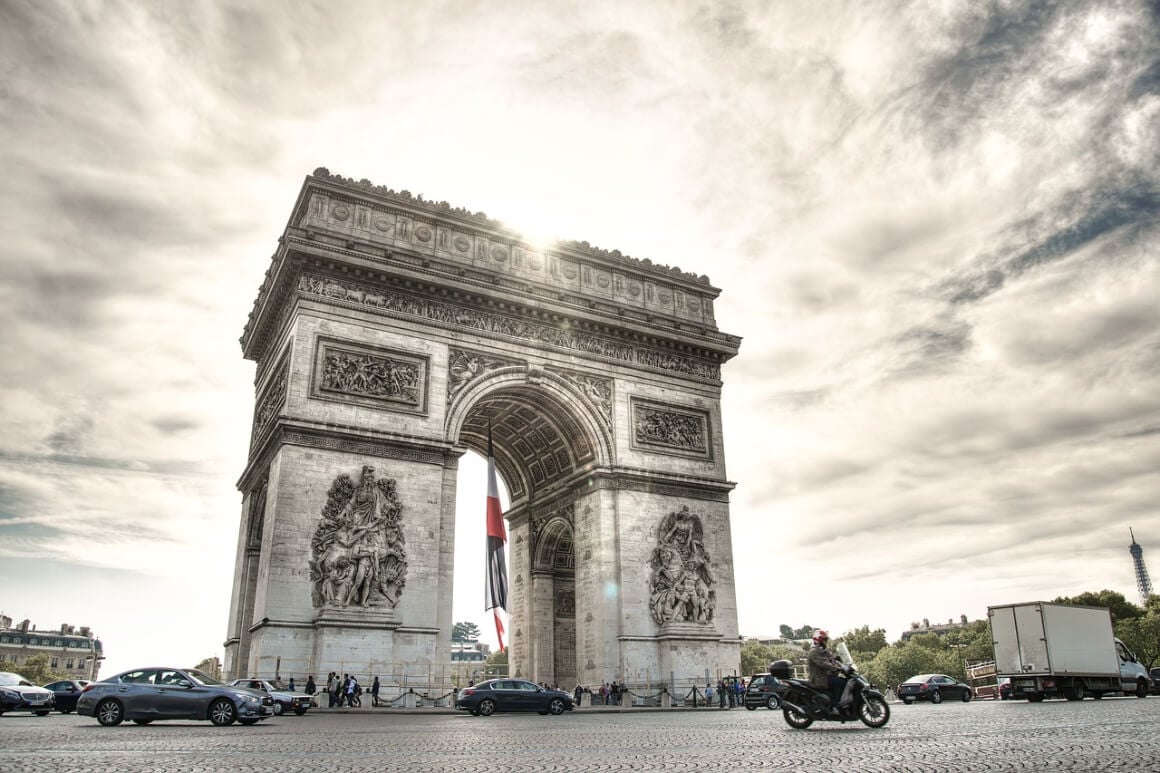
Don’t worry. I’m going to walk you through all the important info for a French working holiday, but first, here are my top 5 tips to make sure your journey is smooth and hassle-free.
1. Applying for the correct visa. This may seem like a no-brainer, but there are few different visa types, and maybe the France working holiday visa isn’t for you. The first question to ask yourself is, are you a national from a qualifying country? If yes, then are you aged between 18 to 30? (35 in some cases). If it’s another yes, then the working holiday visa is the perfect option for you!
2. Know how long you want to be away. If you only want to be in France for a short while before heading out to visit the rest of Europe , it may not be worth while getting a job, finding a long-term place to stay, etc. In this case you’ll only need a tourist visa, saving you fees, time, and getting together a load of documentation. It’s also good to know how long you plan to be away so you can organise your commitments back home.
3. Finding the right job. What’s the big deal, it’s just a job, right? Wrong. You will be living AND working in France, so having a job that you like or is at least bearable will make those working days (in between some fantastic adventure-filled weekends of course) a lot more fun!
4. Finding accommodation. France, and especially Paris, isn’t cheap . It’s good to have a clear idea of where you want to work, so you can budget in having enough money for your first couple of weeks accommodation before you find a job. Don’t forget about the commute either, sometimes paying a little extra to stay closer to the center of town is better than having to commute 40 minutes every day! There are so many incredible towns and places to stay in France , it isn’t all about Paris.
5. Getting around on your days off. By far the best way to get around France is by train. The routes can be super scenic, you’ll get to your destination pretty quick, and trains are comfortable. If money is a bit of an issue, the country has an extensive bus system that also goes to other countries in Europe. If you want total freedom and have the money to rent (or buy) a car, then driving is possible as long as you have a license. You may want to double check if you’ll need an international driving permit, however most drivers don’t. France also has rules on certain items to keep in your car, so it’s best to get some up-to-date information on that.

A new country, a new contract, a new piece of plastic – booooring. Instead, buy an eSIM!
An eSIM works just like an app: you buy it, you download it, and BOOM! You’re connected the minute you land. It’s that easy.
Is your phone eSIM ready? Read about how e-Sims work or click below to see one of the top eSIM providers on the market and ditch the plastic .
The availability of a working holiday visa depends on your home country. As always, all the important info is coming up, but you may want to double-check on France’s official website for up-to-date info!
As of now however, there are 15 qualifying countries. These are Argentina, Australia, Brazil, Canada, Chile, Colombia, South Korea, Hong Kong, Japan, Mexico, New Zealand, Peru, Russia, Taiwan, and Uruguay.
There are some conditions of the visa, mainly that your reason for traveling to France is for tourism and to discover French culture. However, you will have the right to work to supplement your income. Again, you’ll need to be aged between 18 and 30, except for visitors from Argentina, Australia, and Canada who can apply up to age 35. People holding this visa are permitted to live and work in France for up to a year, without the option for renewal, except for Canadian citizens who have a special working holiday agreement.
To apply for the working holiday visa, you’ll need to submit a request for a temporary long-stay visa or a VLS-T. Australian, Canadian, and Colombian citizens can file their visa application at a visa center of their choosing, but applicants from the other 12 countries, will need to apply at a visa center in their home country or national territory.
The absolute beauty of working holidays in France is that visa holders don’t have to complete any formalities when they arrive. You read that right! No paperwork, heading to local town halls for residency permits, no declaring arrival, etc. You won’t even need to get a work permit, unless you are a citizen of New Zealand or Russia.
To secure a working holiday visa, you’ll need proof of a return flight, have sufficient funds and resources for the beginning of your stay (you may want to clarify with your local embassy the exact amount), have not already been to France on a working holiday, and not be accompanied by any dependents, including children.
At this point, you are hopefully realizing just how amazing and easy a French working holiday could be. If you are totally raring to go, but are a little apprehensive over the whole “sorting a visa” bit, then opting to get outside help from an agency or company might be the way to go. Visa First is a great option for people who just wanna sit back and let someone else handle the boring stuff so they can give all their attention to the fun planning part of the trip. Sounds great, right?
As alway, I gotta do my due diligence and at least mention travel insurance. I can tell you from personal experience that having travel insurance is always a good idea. In fact, for non-EEA nationals, you’ll need to prove you have health insurance for the entire duration of your stay – YIKES. If the world of travel insurance goes straight over your head, WorldNomads is a good place to start. They’re super reliable and affordable so you’ll be in good hands.
ALWAYS sort out your backpacker insurance before your trip. There’s plenty to choose from in that department, but a good place to start is Safety Wing .
They offer month-to-month payments, no lock-in contracts, and require absolutely no itineraries: that’s the exact kind of insurance long-term travellers and digital nomads need.

SafetyWing is cheap, easy, and admin-free: just sign up lickety-split so you can get back to it!
Click the button below to learn more about SafetyWing’s setup or read our insider review for the full tasty scoop.
Unfortunately, most of us aren’t made of money, and having a rough budget is at the top of our to-do lists when it comes to any type of trip. So, you’re going to need to have “sufficient funds” for the beginning of your stay, with the amount specified in each country’s working holiday agreement with France. This is normally between USD$2,250-4,000 depending on your country (more is always better of course!).
Now that may seem like a lot of money, especially on top of your return flight, but trust me, you’ll definitely be glad of this buffer if it takes you longer to find a job OR if you wanna spend your first few weeks in France exploring.
Still, it’s good to have an idea of what the costs of living in France are so you can make a monthly budget, and make sure your money lasts. This will also help you to decide whether your job will be enough to sustain you depending on where you’re living. Paris is famously expensive if you didn’t already know…
It’s not all bad news though, there are some parts of France that are super affordable, and Paris (as great as it is) isn’t the only place you could go to have an amazing time. While big cities like Lyon, Nantes, Marseille, and Bordeaux can still err a bit on the expensive side, they are friendlier on your wallet than the capital!
If we compare Nantes and Paris for example, a central one-bedroom apartment or Airbnb in Nantes will cost you USD$600 a month compared to USD$1.000 a month in Paris. Jobs like au-pairing come with free accommodation (with your host family), so if you have your heart set on a more expensive destination, this may be the job for you!
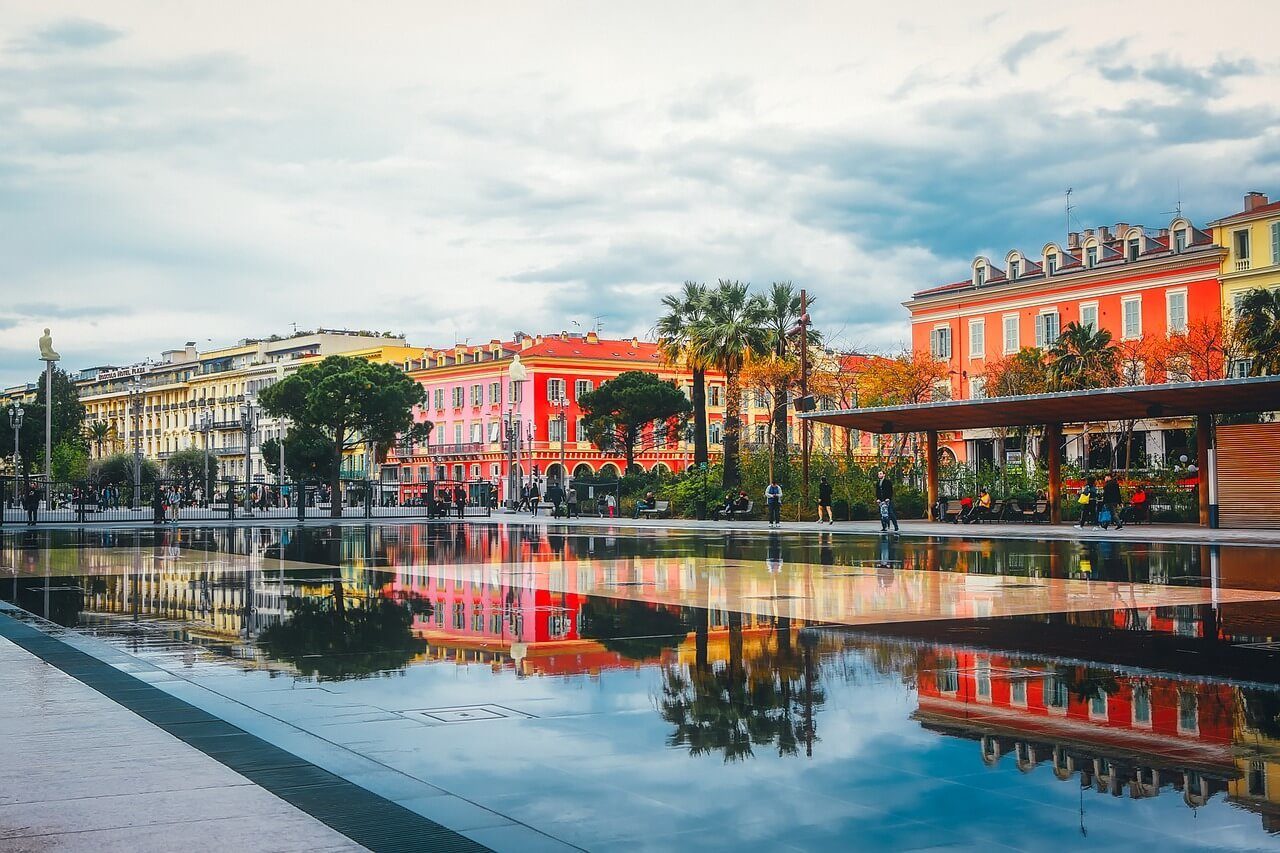
One of the most important aspects of working holidays abroad is the earning money part of course! I’ve already gone on about how you don’t really need to do any paperwork when you arrive in France for your working holiday, so that just leaves you with the finding a job part (and some other important bits).
I’m talking about taxes here, and this is where it can get a little confusing… You’ll probably end up paying your taxes through the PAYE system, so your employer will sort it for you. Non residents in France pay a flat tax rate of 20% for earnings up to 27,519 EUR.
Another thing to remember, and one that is crucial to getting paid, is having a local bank account. Most local banks should accept new customers, even if you’re a foreigner, as long as you have the right documentation. You will need to bring your passport and your proof of address in France (this could be a utility bill or a copy of your lease).
The next step you’ll need to consider is transferring your funds over into your new bank account. International transfers can sometimes incur hefty fees depending on your bank. I personally always use Wise (formerly known as Transferwise) to transfer money between international accounts. The rates are super good and the service is easy to use. If you wanna shop around a bit with some other companies, then Payoneer is another good one to check out!

Sometimes, moving somewhere new can be a little nerve-wracking, that’s why it’s a good idea to work with an agency who specializes in amazing experiences abroad and working holiday jobs. This is where Global Work and Travel come in, these guys are the keepers of the information.
Some of the most popular working holiday jobs in France are au pairing for a local family, tutoring English, or working a ski or summer season at a resort. All of these will give you some incredible life experience and teach you a range of new skills.
Au Pair in France
Au pairs are kind of like a live-in nanny who not only helps look after the children, but may also do a range of household jobs like light cleaning, and helping in the kitchen. This job is great for people who love kids and want a fully immersive experience. You’ll be living WITH the family in their home, with free board and meals. Best of all, you’ll get paid!
Au pairs are entitled to one and a half days off a week, and typically have one week off every 6 months. Generally you’ll be working around 30 hours a week, but you may want to clarify with your host family, it could be a little more or a little less.
Since you’ll be with the family practically 24/7, it’s really important to find the “perfect match”. You should think about where you want to be, what age of children you feel comfortable looking after, and how you feel about any extras they might want you to do.
There are lots of au pairing opportunities in France, and it IS possible to find your own job. You can either get in touch with some local agencies or check out the classified ads/online forums. However, if you are in France on the working holiday visa, you will need to have your contract signed before you arrive.
The best way to organize au pair working holidays is to link up with an agency as they will handle everything for you. Global Work and Travel have a specific au pair working holiday programme that has a TONNE of added extras. Their placements are between 3 and 6 months long, and you’ll need to be between 18 and 30 to apply.
They will match you with a local host family, and you’ll be able to connect with them before you arrive to make sure it’s the right fit! Your dedicated trip coordinator will ensure everything goes smoothly, answer any questions you have, and help you with arranging the paperwork.
Au pairs with Global Work and Travel get paid between 80 and 100 EUR a week (90-112 USD) depending on the host family. You will get one week of paid vacation every 6 months.
Tutoring in France
Teaching or tutoring has got to be one of the most popular things to do on working holidays abroad, and France is no exception. There are two main routes to go down to teach English in France. You’ve got the regular ESL teaching option, which requires you to have a bachelor’s degree, at least two years of work experience teaching English, and an ESL teaching certificate from somewhere like CELTA or TESOL, or you could consider becoming an English tutor in France.
Being an English tutor is great for someone who doesn’t meet the criteria of being an ESL English teacher, plus it is a fantastic experience and a great opportunity to really dig deep into the French culture and way of life. Tutors can live with host families, and can teach both the adults and children English a few hours a week in exchange for room and board (some families might even give you a bit of spending money too).
Most potential host families are found in and around Paris or the South of France (not too shabby eh?). You could DIY the whole experience and peruse around the classified ads for families looking for tutors or looking in online forums and pages, but we totally understand if this might not sound ideal for you.
If you are interested in being an English tutor during your working holiday, but are a bit worried about the potential cons of doing it yourself (hello host family from hell), then doing it with a trusted agency who fully vets out families could be the way to go for you. I am of course talking about Global Work and Travel (these guys are kinda awesome if you didn’t realize already), and they have 10/10 tutoring placements in France.
You’ll need to be aged between 18 and 35 to apply, and be from an eligible country. Their placements last between 1 and 3 months, and they will handle matching you up with a local family who will welcome you into their home and feed you some “très bon” food! You’ll have a personal trip coordinator who will help you organize everything from visas, interview prep, and coordinating your arrival with your host family who will get you from the nearest major airport.
This working holiday programme also has MEGA perks, from an online tutor course to improve your teaching skills, five nights hostel accommodation for when you wanna explore the country a little bit, PLUS your pick between the two best parties Europe has to offer – Ibiza or Oktoberfest!

I’ve already talked a little about DIY-ing your working holiday in France, and although it may be a little extra work, for all you free spirits out there, it could be the ticket! One thing to remember is that unless you speak French, your job search will be limited to major cities and tourist hot spots (that doesn’t sound too bad though).
You will be responsible for sorting out your own visa, return flights, and making sure you have enough cash to a) qualify for the France working holiday visa and b) see you through your time there. Most working holiday jobs in France are in low-skilled work like retail and hospitality. If you’re thinking of working a ski or summer season, you may want to peruse the job boards before you arrive as these times are particularly competitive.
If you want to do something a little different than your typical working holiday in France, you could consider saving money during your trip by working in exchange for free room and board. Sites like WWOOF, Worldpackers , and Workaway are PERFECT for this, and you’ll find loads of next-level opportunities in more rural areas too, if that’s what you’re after.
I don’t know about you, but I am just about ready to take advantage of that amazing France working holiday visa. Nothing sounds better to me than living in one of the most romantic countries in the world, all while making some extra cash to see the sights!
Not only do working holidays abroad give you a chance for a long-term holiday (hello gap life), they also teach you a whole load of new skills and will have you in a situation that will challenge and help you to grow. You may even come back speaking a few words of French – oh la la!
One thing is for sure though, whether you DIY or go with a trusted agency, taking a working holiday in France will be the best decision you ever make. Nothing beats truly learning about a culture, learning about yourself, and making some awesome memories! Oh, and the wine there is pretty good I hear…
Buy Us a Coffee !
A couple of you lovely readers suggested we set up a tip jar for direct support as an alternative to booking through our links. So we created one!
You can now buy The Broke Backpacker a coffee . If you like and use our content to plan your trips, it’s a much appreciated way to show appreciation 🙂

Mathilde Magnier

Share or save this post

Hello I would like information on how to become a hôte for holiday workers. We have a bed and breakfast restaurant in the Marais Poitevein in France. We also have a few animals and outside work to be done. Than you for any information. Yours sincerely Carole Donny
Im not sure if you are looking for volunteer help, or have paid positions, but you could start by looking into HelpX, Workaway, and Wwoof to see if you interesting this type of exchange.
Hello, What about taxes? Do we have to pay taxes in France once our visa is almost done or do i have to pay them in my country of residence?
Generally you pay taxes in the country where you are doing the working holiday and often there is a particular tax rate and conditions for people on WHV. You need to check directly with the tax authority of the country where you will be working to ensure you get all the correct and relevant information.
Thanks very much Clair. I’m on it!
An extension is allowed for Canadians only (for period total of 24 months). Can someone suggest where to start this process? I’m currently in France and have a month left on my one year working holiday visa. Called VFS in Canada and they don’t handle extensions. One website said contact the “prefecture” but where/who is that? Thanks for any help!
Hi Richard,
You would be best to contact the French immigration/border authority. Ultimately they grant your rights to stay in the country.
Hope you get your extension!
Hey there, If I have a working holiday for France and my visa says France + 1 transit Schengen are you allowed to work in Guadeloupe? from what I can see online some web pages say I can others cant but am finding it difficult to contact anyone to find out for certain? thanks in advance
Unfortunately, this is a question that can only be answered by the relevant immigration and border agencies for which you hold the visa.
Leave a Reply Cancel reply
Your email address will not be published. Required fields are marked *
Save my name, email, and website in this browser for the next time I comment.
Notify me of followup comments via e-mail.
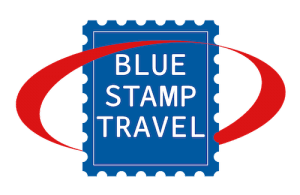
France | Paris
Work and study.
Our unique package provides opportunities for language students to study intensive lessons abroad whilst taking on a short-term work experience at one of our varied work placements. Working with our partner language schools across Europe, we provide a package tailored to suit your needs; study, work placement, accommodation, transport, transfers, insurance.
Work and Study packages are available for students studying at A Level or equivalent or higher. It is also suitable for Gap Year students and for university students or adults looking to improve their languages skills, even if it has been some time since they last studied languages formally.
Work placements are available from a range of business categories . Students state their preferences as part of their application and our Placement Coordinators match students to the available placements. Work and Study work placements take place in the afternoons / early evening depending on the sector.
The Work and Study programme runs every Monday to Friday throughout the year. Accommodation is available from Sunday to Saturday. Students can travel for a week, two weeks or longer. We are able to tailor packages to suit your requirements and the time you have available.

Studying French amongst the history, culture and cosmopolitan life of Paris is truly an experience to remember! The language school in Paris is right in the heart of the city.
The school is situated in the heart of Paris, offering students a quintessential Parisian experience. The campus is situated in the 7th arrondissement, placing students within a short walking distance of iconic landmarks including the Eiffel Tower and Champ-de-Mars. You will find a young and dynamic atmosphere at the school, which has modern classrooms, free wifi, and study areas including computers. The school is wheelchair friendly.
Students will be allocated to a class depending on the results of their level test prior to their arrival.
Language Course
The core course comprises 20 lessons which concentrate on learning and actively using French. The tuition is very much practice oriented. You will participate in group sessions alongside other students of a similar level, with lessons focused on improving all aspects of the language; speaking listening, reading and writing. There are 4 x 45 minute lessons per day which take place during the morning.
You will be given a written assessment before you travel and a speaking assessment on the first morning before lessons in order to place you in the group most suited to your ability level. Classes have an international flavour and a lively feel because they are grouped by ability not nationality or age.
Work Placement
There is no replacement for using your language skills practically in real life situations and in the country where the language is spoken. On a Work and Study trip you will have the opportunity to improve your French language skills in the morning lessons and then be exposed to the language in a practical work situation for the afternoons, giving you the optimum chance to gain confidence in all areas.
Each of our work experience placements fits one of our Business Categories . Placements include shops, restaurants and hotels, nurseries, radio stations, sports facilities - almost anything that you will find in a big city! Our placement team take great pride in securing placements that meet our students' needs. Take a look at our Gallery to see the variety of placements we offer.
Optional Social and Cultural Programme
The school offers a range of activities during the week, such as a film club, meal out at a local restaurant and excursions to the many cultural and historic sights and venues in Paris. Some of the activities incur an extra cost (payable on the week of your stay directly to the school) however, many of the activities in Paris are free. All activities are optional.
Accommodation
For students wanting to completely immerse themselves in the French language and culture we recommend that you stay with one of our carefully selected French hosts. They will not only introduce you to the French way of life and help you practise the French language but will also give you a taste of local and delicious regional specialities. Host Accommodation is situated near to the school and provide half board (breakfast & evening meal) from the Sunday before your course starts to the Saturday after it finishes. Subject to availability, an extra day on one side of your trip may be available on request to facilitate flight dates. A surcharge is payable for any extra nights.
You can read more about what it means to stay with a host in our Host Accommodation Guide .
Centrally located studio accommodation with private bathroom and kitchen is available is available to students aged 18+ on request.
The school is easily accessible via the Paris Metro and we are happy to provide details on request. We can also arrange private transfers for you from any of the Paris airports or train stations for an additional cost.
School Closures
The school will be closed on 01/11/24, 11/11/24, 21/04/25, 01/05/25, 08/05/25, 29/05/25, 14/07/25, 15/08/25 and 11/11/25,
On these days the school does not make up lessons on other days. Of course in Paris, there is no shortage of opportunities to spend the day exploring the galleries, museums (many with free entry) and shops.
Paris, France
Included in the package.
- 20 Core French lessons per week
- Work Placement (afternoon/evenings)
- Accommodation (optional)
- Social & Cultural Programme (optional)
- Course Certificate
- 24/7 Emergency support from UK office
- Comprehensive Travel and medical insurance
Longer stays
Students are welcome to book into the school for any number of weeks. Many students will travel to the school for long (12 weeks+) at a time, even starting from limited or no level in the language. We have prices for 1-4 weeks on our website. We are able to arrange any duration of stay at the language school. Contact us if you would like a package that we have not listed.
For more information and Frequently Asked Questions please visit our Work and Study page.
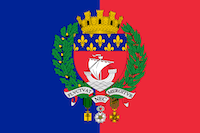
Find out more about the French capital city of Paris on Wikipedia .
- Find a company
Moving to Paris to Work
Apr 23, 2019
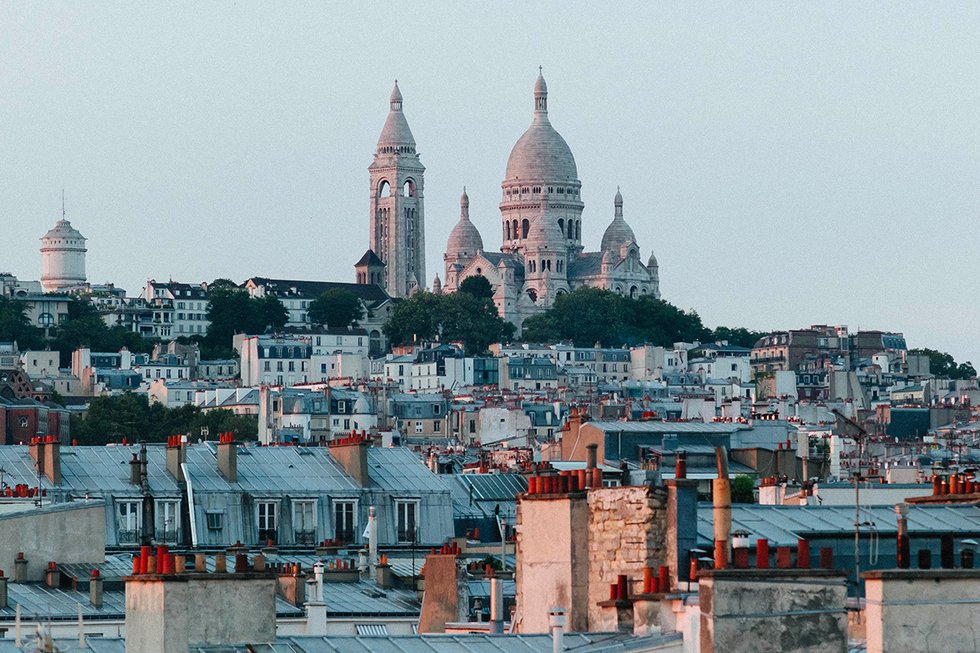
Paris, the City of Light, the capital of romance… a place that truly needs no introduction. Nevertheless, when you live there, it’s not always possible to participate in daily life with rose-tinted glasses perched on your nose. But you don’t need to worry about that: We’ve gathered all the information you need to make your Parisian experience a complete success!
The job market
In 2018, the unemployment rate in Paris dipped slightly to 8.4%, which is slightly less than the national average . France remains particularly centralized around its capital, which makes Paris and Ile-de-France the best areas to find a job : The region’s activities represent no less than 31% of the national GDP. The city also boasts the largest population of executives—33% of Ile-de-France’s inhabitants—thanks to the presence of large French and international headquarters (hello, La Defense!), various federal ministries, and major institutions.
So, adapt your résumé to the French style to include a photograph and details of your professional experience, education, and qualifications, as well as your hobbies and skills (all on one page, please!), prepare your cover letters (without any spelling mistakes or other errors), translate your LinkedIn profile into French, and you’re off! Also, become a whiz at interviews: It isn’t uncommon to have several (count on at least two, not including the first contact by telephone) before finally being hired. It’s a long, hard road, and your probation period could be extended, which will, in the end, make your success even more awesome! And even if Paris is the most popular tourist destination in the world, pay attention to your French when applying for a job—your proficiency, in both writing and speaking it, could end up being a determining factor.
On the other hand, there’s good news for French-speaking entrepreneurs: Paris has become the European capital for start-ups , even surpassing its neighboring rival, London. In fact, several business incubators have opened their doors to great fanfare in Paris, including Station F (declared the world’s biggest start-up campus, no less) in the 13th arrondissement, and Le Cargo, in the 19th, to name just two. In all, at least 100,000 square meters are dedicated to 10,000 Parisian start-up companies and their 5,000 employees, maybe even more.
The sectors that are hiring
- Tourism: As mentioned above, people flock to Paris in droves—millions of tourists have taken selfies in front of the Eiffel Tower since January 1, 2018.
- Communications: Salaries start at about €26,000 per annum for junior public relations managers.
- IT: Like everywhere else in the world, IT engineers and other web developers are particularly sought after. They can claim an annual starting salary of €40,000, which can quickly increase due to demand.
- Research: €45,000 per year on average for researchers.
- Finance: Between €50,000 and €100,000 annually for traders.
- Paramedic staff: €1,600 monthly for assistant nurses.
Company culture
As a general rule, you are expected to arrive at work between 9 AM and 10 AM and leave between 6 PM and 7 PM. Arriving on time can often be difficult because of the erratic public-transport system (especially if you travel on the RER lines). If we could give you only one piece of advice, it would be to always leave home earlier than you think you need to, even if being a few minutes late is often tolerated in business. Lunch breaks last one hour (two in August). Ticket Restaurant meal cards, the cost of which is shared equally between an employee and their employer, encourage the habit of taking your lunch break with colleagues and eating outside the company walls.
We talk a lot about 35-hour weeks, but you will more than likely be offered a 39-hour contract , and you’ll probably put in 40-hour weeks, maybe even more. This overtime is supposed to be reimbursed by your company, but in reality you can kiss that goodbye—or ask for time in lieu. Unfortunately, Paris is highly influenced by the very French phenomenon of working long hours. “There are times when I finish my work at 5 PM, but am unable to leave before 7 PM or even 7.30 PM without hearing some sort of remark like, ‘So, taking the afternoon off?’” says Amélia, a young PR liaison who arrived in Paris three years ago after finishing her studies in Lyon. “It’s really annoying, even if I know that it depends on the company.” And what about the stress? “That really depends on the agency. Sometimes the whole team is stressed out, every day of the week, and that can quickly become unbearable,” she says.
Try getting a feel for the ambience during your interviews before committing to a contract. Bryan, an American real estate agent who moved to Paris five years ago, says that he still has difficulty following French social expectations. “When meeting new people at work, it’s often difficult to know whether we should shake hands or kiss on the cheeks.”
“There are times when I finish my work at 5 PM, but am unable to leave before 7 PM or even 7.30 PM without hearing some sort of remark like, ‘So, taking the afternoon off?’”—Amélia, PR liaison
The positives
- You will live in the most beautiful city in the world (haters gonna hate, but everyone knows this is true).
- You can eat bread, cheese, buttery croissants, and drink wine every day because, in France, it’s totally normal!
- You will live in a country with universal healthcare and social coverage, which means you will have the right to be reimbursed for your medical appointments (at least in part), and unemployment if you are laid off, and you contribute to your federal retirement plan.
- In 2018, the minimum wage was almost €1,500 (gross) for a 35-hour week.
- You have the right to 16 weeks’ maternity leave, minimum (which can rise, according to your employer’s terms or the number of children you have), while fathers have the right to a minimum of 11 days’ paternity leave after the birth (it could be better, but that’s not too bad).
- Officially, the working week is 35 hours.
- “Five weeks of paid vacation,” adds Bryan, “allow the French to spend time with their families, have hobbies, learn new things, or even exercise.”
- “It’s really a multicultural city,” says Chloé, an Australian who came to Paris for an IT internship, enthusiastically. “There is a diversity in the people—we can eat Tibetan one day, Senegalese the next, and Argentinian the day after that. It’s incredible!”
The negatives
- Paris currently holds joint first place with Singapore and Hong Kong as the most expensive city in the world, according to The Economist Intelligence Unit.
- In 2018, Paris ranked 19th as one of the most livable places (it was 32nd in 2017, so that’s a decent leap).
- When it comes to places where it’s good to live if you’re a foreigner, Paris came 67th out of 72 in 2018… wait, what?
- “Paris is a dirty city,” says Chloé.

Who does it suit?
Even if Paris has this image of being a beautiful and romantic city, where everyone walks about in berets while eating baguettes, this doesn’t reflect the reality. Paris is a stunning place, with Haussmannian architecture, picturesque neighborhoods (such as Montmartre), and typical cafes, but living in the city can be a little bit more difficult than expected for new arrivals. “Parisians are not very friendly, and frankly, are even unpleasant—on public transport, for example,” says Amélia. Chloé adds: “It was rather hard to make friends when I arrived, because everyone was already in close-knit groups. It’s not that Parisians don’t speak English—sometimes I get the impression that they pretend they don’t speak English so that they don’t have to talk to tourists.”
That said, the city offers—like any large, self-respecting metropolis—a wide range of fun activities and entertainment : Restaurants, boulangeries, and cafes galore; an abundance of museums and galleries; quaint neighborhoods to stroll through; everything for shopaholics, whatever the budget. The city’s nightlife has also been revamped over the past few years, so every type of night owl will find what they’re looking for. There are countless shows, musicals, stand-up venues, gigs, bars, nightclubs, and underground parties to choose from. The one thing that is possibly lacking is real, quiet outdoor space to relax in. “As soon as the sun comes out, the parks are full of people and you can’t really relax,” says Chloé. That means you need to shake off any agoraphobic tendencies, and you need to know how to claim your space!
“It was rather hard to make friends when I arrived, because everyone was already in close-knit groups”–Chloé, IT intern
Practical information
Paris is an expensive city and that can be felt in the rents, which are about €30 per square meter. Rent control was recently annulled, so the landlord is king. Finding the right place for you in Paris is not an easy task: There is stiff competition for places, and the necessary documentation is becoming more and more challenging . Look on Le Bon Coin or PAP à for the best availabilities and be prepared to print out a ton of documents (sorry, Mother Nature): Your last three payslips, your parents’ or guarantors’ last three payslips, your income-tax liability (and theirs), an offer-of-employment letter if you are about to begin a new job, a letter stating you are no longer in a probationary period if you already have a contract—plus you’ll need to have one to two months’ rent available for a security deposit, and who knows what else. But after this inevitably excruciating search, you will find the perfect place and have some great apartment-hunting stories to tell at parties! You could also think about settling in the suburbs, where apartments are larger and cheaper, although your commute will take longer. Also, remember that you will be liable for electricity and water costs, no matter where you end up.
France—the country of human rights and sacrosanct universal healthcare! But not without a lot of red tape, of course. European citizens can choose to remain under their national program or sign up for the French one. Citizens of other countries can take advantage of Puma (Protection Universelle Maladie—Universal Health Protection—not the sneakers). If you are an employee, your company will take care of getting your social security number; otherwise, head to the nearest CPAM (Caisse Primaire d’Assurance Maladie) to obtain it yourself. You must then choose your primary physician, so that you will be reimbursed 70% of the cost of your appointments (100% for women who are more than six months’ pregnant).
Remember, you must see your primary physician before going to see a specialist (such as an ophthalmologist or gynecologist) in order to receive reimbursement. You are reimbursed for medicine at between 15% and 100% of the cost.
Public transport
The Navigo card will be your BFF! For €75.20 a month , you can travel in all five zones! It will also entitle you to use the night-bus network, Noctilien , which runs until about 5.30 AM, but other passengers tend to be rather drunk. You can also sign up for the Vélib’ city-bike system and inhale the gentle, albeit polluted air in the city while going to work: It costs a maximum of only €37.20 a year (the first 30 minutes are free, and then €1 for every additional 30 minutes), but for lazier people who want to use the Vélib’ electric bikes, it costs up to €100 annually. We do not recommend commuting in your car—it will literally drive you insane.
Internet and cell-phone service
You will find cell-phone service starting at €2 a month, but count on more than €12 if you’re a serial Instagrammer. Likewise, you can find internet-TV-landline services starting at €20—stay on the lookout for special offers from the different providers.
Visa information
France offers various types of visas to foreigners, including temporary-residence permits, long-term-residence permits, permanent-residence permits (after having lived in the country for 10 years), European-residence permits, student or internship visas. You can find all the information about visas here and here . In any case, you will need a valid passport, birth certificate, and documents justifying the reason you’re in France (such as an offer of employment or internship)—and a bit of money: Visas can cost from €60 to €269, depending on your situation. You’ll also need to go to the OFFII ( French Office of Immigration and Integration ) on your arrival to finalize all the details.
So there you go! Now you should have everything you need to know to successfully move to the capital of France and start your own Parisian adventure!
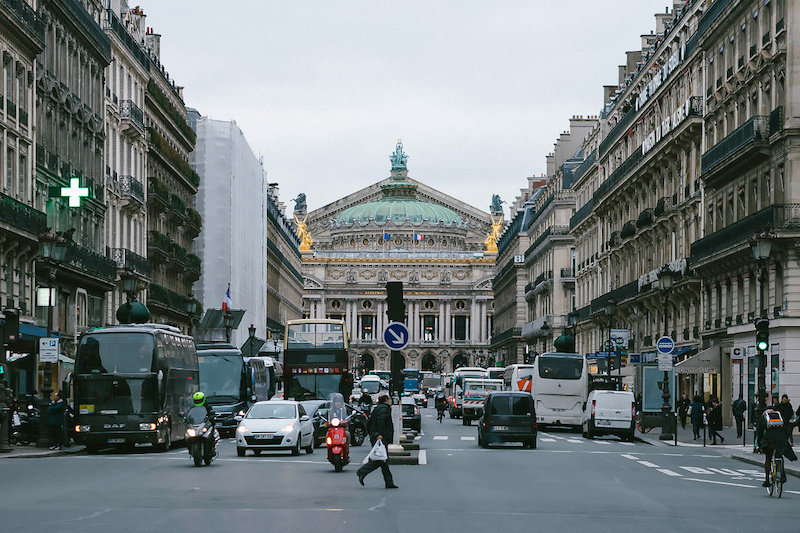
Translated by Mary Waggoner-Moritz
Photos: Thomas Decamps
Prices correct at time of publication
Thinking of moving to Barcelona for work? Discover all the insider tips, advice and inspiration with our city guide .
Follow Welcome to the Jungle on Facebook and sign up for our newsletter to receive our articles every week
More inspiration: Relocate for work
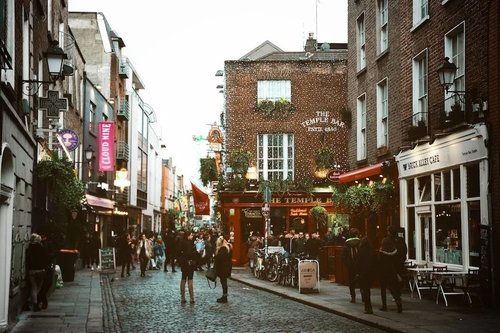
Fancy moving to Dublin, Ireland to work? Here’s what you can expect
Discover what makes Ireland's capital a top destination for professionals worldwide.
Apr 16, 2024
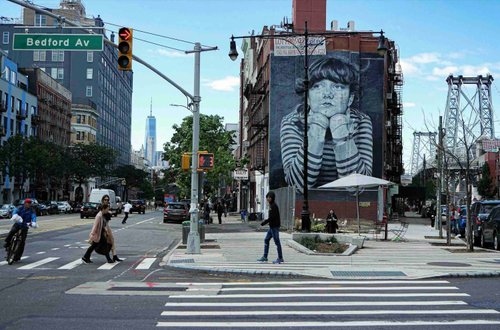
Moving to NYC for work? Here's what you need to consider
What is the reality of living and working in The Big Apple? The truth has to lie somewhere between Sex and the City and Taxi Driver.
Jan 10, 2024
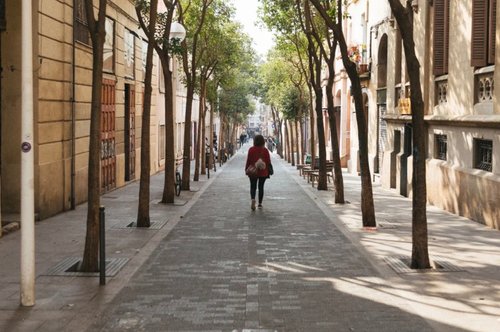
Fact or fiction: graduate programs in Europe are worth it
As soaring US tuition cost has caused a debt crisis, Americans are turning their eyes to graduate schools in Europe...
Apr 12, 2023
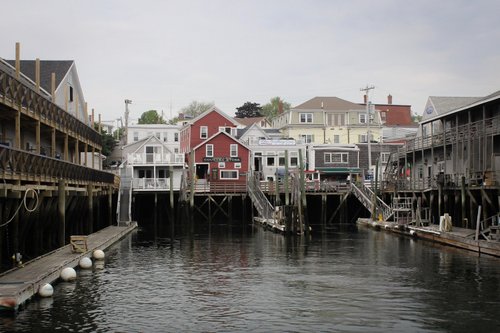
The 2023 guide to living and working in Portland, Maine
As the cost of living in East-Coast naves like Boston and New York keeps rising, Portland is emerging as a top choice for big-city defectors.
Mar 21, 2023

Moving to the country in a post-pandemic world
As remote and flexible work edges toward ubiquity, roughly half of Americans would already prefer a rural area to a city or suburb
Feb 13, 2023
The newsletter that does the job
Want to keep up with the latest articles? Twice a week you can receive stories, jobs, and tips in your inbox.

Looking for your next job opportunity?
Over 200,000 people have found a job with Welcome to the Jungle.

94,465 + dreams turned into reality
Be more than a tourist️. ™
Discover & join Join the best real-world travel experiences.
Work Overseas
Get paid to travel & stay for longer.
The world's best work & travel trips.
Explore by interest.
Explore a new country and become a local, whilst getting paid with a seasonal job.
See another side of the world as you travel with a purpose, and leave a lasting impact.
Join an international host family and care for children, with living expenses covered.
Get internationally accredited, teach English at a local school, fund your travels further.
Join an international firm, gain leading real-world experience, then watch future doors open.
Have the best summer of your life, shaping young lives and exploring the world whilst at it.
Mentor children of an international family and explore in your free time.
Bring your own job, work remotely, join a community, and travel the world.
Trending trips from Australia
Don’t waste 1-2 months job hunting - land a job match BEFORE you arrive & start earning $$ in paradise! New friends, new adventures, new life.
🚨 Last chance for Australia & NZ in '24 🚨 Last chance for Australia & NZ in '24
Popular destinations, gworld - your very first travel buddy.
Stay organised for your upcoming adventure. Plan your trip, access deals from the marketplace, learn a new language and even make friends on the same trip as you! All from the palm of your hands.
International Travel & Medical Insurance
Designed by & for young people exploring the world, get Global Travel Cover for easy peace of mind. Buy & renew from abroad too!
Get inspired
A day of travelling will bring a basketful of learning. abeny b., a turtle-ific month in costa rica alyssa a., taylor's working holiday adventure, introducing..., the superlite app.
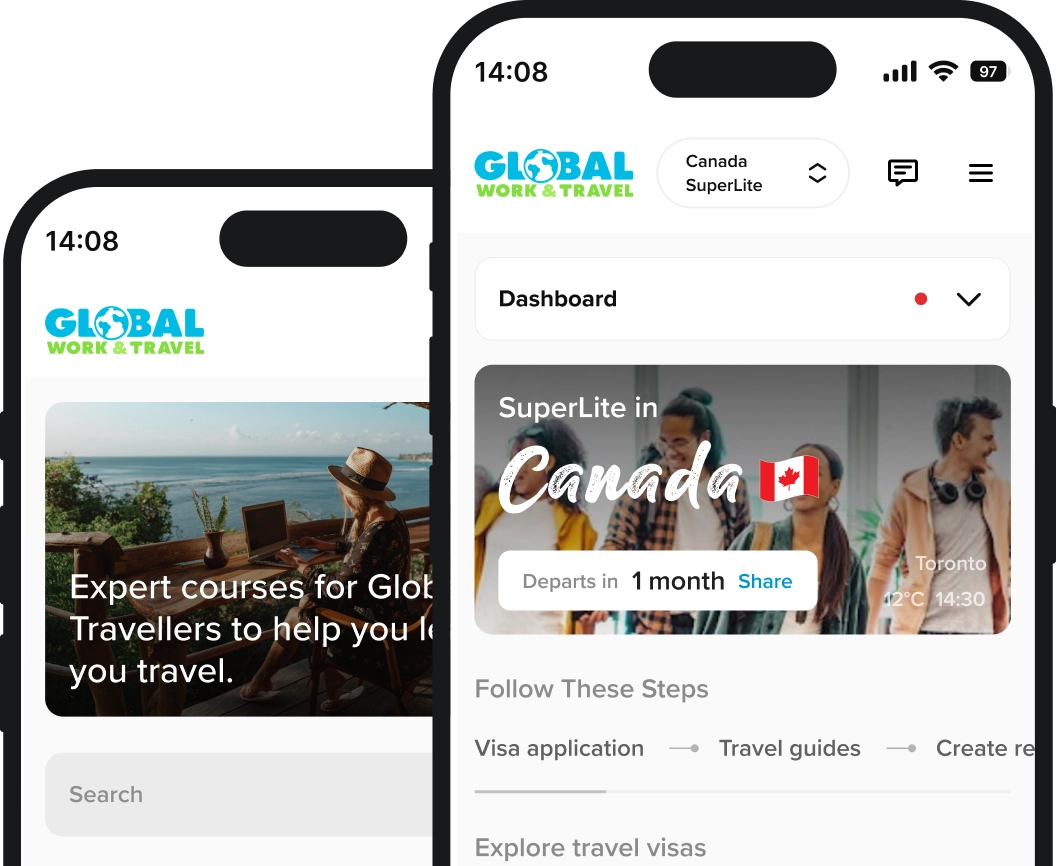

©James O'Neil/Getty Images

Check out this year's Best in Travel winners
Paris' monument-lined boulevards, museums, classical bistros and boutiques are enhanced by a new wave of multimedia galleries, creative wine bars, design shops and tech start-ups.
Best Time to Visit
Best things to do, attractions, must-see attractions.

Eiffel Tower
There are different ways to experience the Eiffel Tower, from a daytime trip or an evening ascent amid twinkling lights, to a meal in one of its…
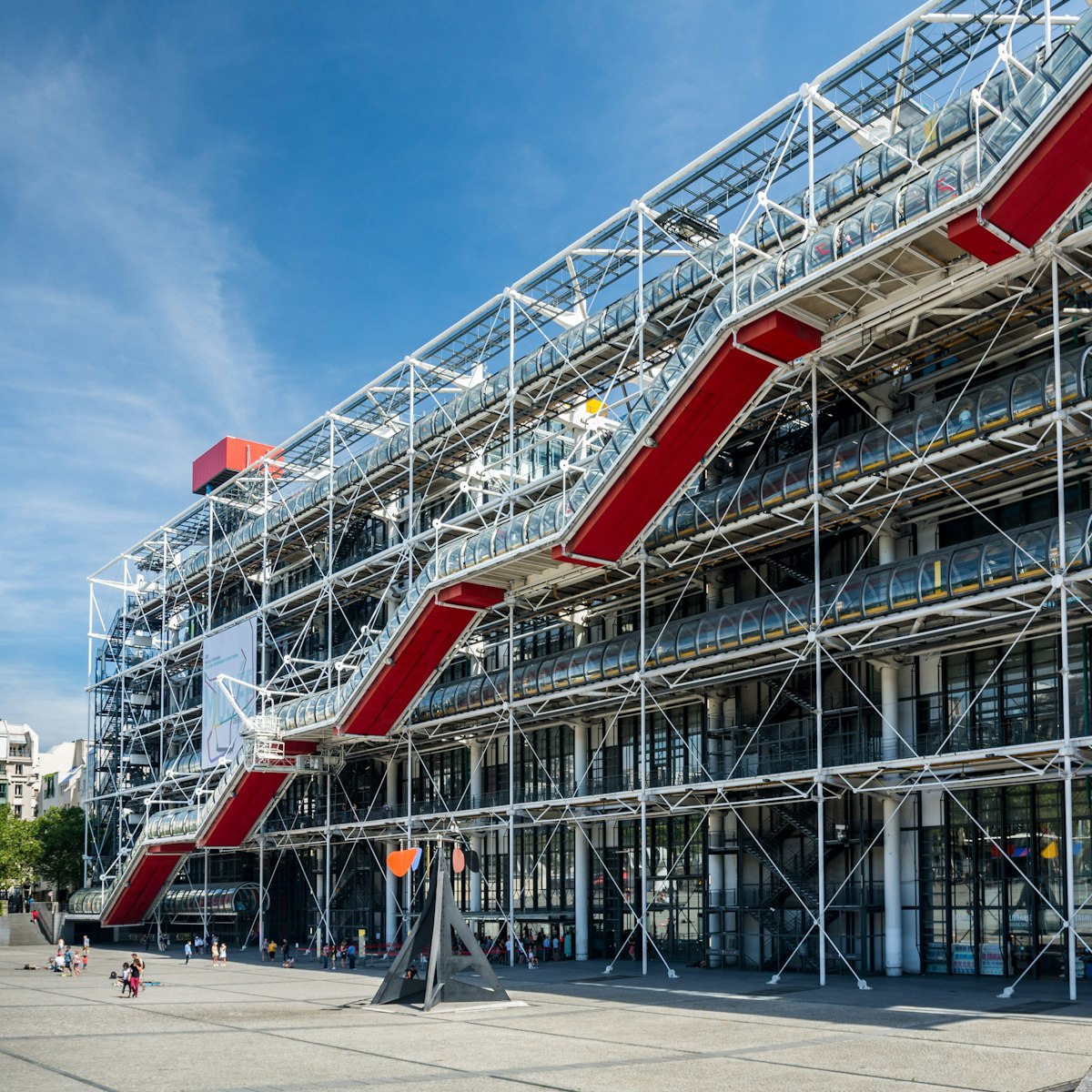
Centre Pompidou
Home to Europe's largest collection of modern and contemporary art, Centre Pompidou has amazed and delighted visitors ever since it opened in 1977, not…

Sainte-Chapelle
Visit Sainte-Chapelle on a sunny day when Paris’ oldest, finest stained glass (1242–48) is at its dazzling best. The chapel is famous for its stained…

Musée du Louvre
It isn’t until you’re standing in the vast courtyard of the Louvre, with its glass pyramid and ornate façade, that you can truly say you’ve been to Paris.

Les Catacombes
It’s gruesome, ghoulish and downright spooky, but it never fails to captivate visitors. In 1785, the subterranean tunnels of an abandoned quarry were…

Musée Rodin
St-Germain & Les Invalides
Even if you're not an art lover, it is worth visiting this high-profile art museum to lose yourself in its romantic gardens.

Jardin du Luxembourg
This famous inner-city oasis of formal terraces, chestnut groves and lush lawns has a special place in Parisians' hearts.

Latin Quarter
Elegant and regal in equal measure, the massive neoclassical dome of the Left Bank's iconic Panthéon is an icon of the Parisian skyline. Louis XV…
Planning Tools
Expert guidance to help you plan your trip.
Things to Know
Plan your visit to Paris with these top tips on etiquette, health and safety, and know what to do if something goes wrong.
Best Neighborhoods
Paris is made up of 20 different city districts (called arrondissements), each with their own distinct charms. Get to know them with our handy guide.
While it’s hard for anyone to leave Paris, these day trips offer bucolic nature, gorgeous cathedrals and more – all only an hour or so away.
Money and Costs
With savvy planning and a bit of local know-how, you'll find a wealth of ways to enjoy Paris without blowing your budget. Here are our top tips.
Transportation
Walking is the best way to explore Paris' individual neighborhoods, but you'll need the bus, metro and RER to go further afield.
Free Things to Do
Look beyond the French capital's most famous sights and you'll discover many free things to do in Paris – and get a local's perspective on the city too.
Traveling with Kids
Whether you're traveling to Paris with babies, toddlers or tweens, we can help you find the right activities to keep the whole family happy.
Discover architectural jewelry, local design, vintage finds, and tiny treasures in Paris' independent shops and markets.
Plan with a local
Experience the real France
Let a local expert craft your dream trip.

Latest stories from Paris

Art and Culture
Aug 23, 2024 • 8 min read
Lonely Planet editor Sasha Brady has crafted the ultimate three-day itinerary for Paris, complete with tips on where to find all the fun stuff.

Aug 20, 2024 • 7 min read

Aug 20, 2024 • 6 min read

Jul 12, 2024 • 5 min read

Jul 8, 2024 • 8 min read

Jul 4, 2024 • 6 min read

Jun 20, 2024 • 6 min read

Jun 17, 2024 • 12 min read

Jun 7, 2024 • 12 min read

May 24, 2024 • 5 min read
in partnership with getyourguide
Book popular activities in Paris
Paris and beyond.

Paris Travel Guide

Courtesy of James Farley | Getty Images


Why Go To Paris
The City of Light draws millions of visitors every year with its unforgettable ambiance. Of course, the divine cuisine and vast art collections deserve some of the credit as well. The gentle River Seine rambles through the city, flanked by stately museums, centuries-old churches, and blocks of Rococo- and Neoclassic-design architecture, further enhanced by cascading trees and glowing streetlamps. Peppering the Seine's cobbled walks and graceful bridges are impossibly chic Parisians, probably on their way to the market, cafe or cinema.
Containing world-class museums, fashion, cuisine and an atmosphere all its own, Paris is also a city of "many splendors," as Ernest Hemingway recalled in his memoir, "A Moveable Feast." Visit the beloved Musée d'Orsay , shop the biggest designers on the Champs Élysées or hit the boutiques in Le Marais , take in the view atop the Eiffel Tower , or even plan a day trip to Versailles Palace . But don't miss out on the simple pleasure of meandering the marvelous arrondissements (districts), or snacking on street crepes either.
Find Flight and Hotel Deals
Navigate forward to interact with the calendar and select a date. Press the question mark key to get the keyboard shortcuts for changing dates.
Navigate backward to interact with the calendar and select a date. Press the question mark key to get the keyboard shortcuts for changing dates.
- # 1 in World's Best Places to Visit
- # 1 in Best Places to Visit in Europe
- # 1 in Best Places to Visit in France
See All 13 Rankings
Best of Paris
Best hotels in paris.
- # 1 in Le Bristol Paris
- # 2 in Grand Hotel du Palais Royal
- # 3 in Ritz Paris

Best Things to Do in Paris
- # 1 in Eiffel Tower (Tour Eiffel)
- # 2 in Musée du Louvre
- # 3 in Notre-Dame Cathedral (Cathedrale de Notre Dame de Paris)
Popular Tours

Eiffel Tower Second Floor Tour and Summit Option by Elevator
(4267 reviews)
from $ 59.88

Bateaux Parisiens Seine River Gourmet Dinner & Sightseeing Cruise
(5482 reviews)
from $ 140.88

Paris Seine River Dinner Cruise with Live Music by Bateaux Mouches
(3255 reviews)
from $ 135.57
Paris Travel Tips
Best months to visit.
The best time to visit Paris is from June to August and September to October. Both summer and fall have its ups and downs. From June to August the weather in Paris is just about parfait (perfect). Average highs are in the high 70s and there are long days of sunshine. Unfortunately, summer is also the most crowded time – and the most expensive. For lower travel rates and significantly shorter lines at attractions , plan a visit in the fall. The seasonal foliage is known to stun, though the city's spring blooms are pretty famous too. If a travel deal is all that you're after, a visit during the winter will surely shave off travel expenses. Keep in mind though that Paris is one of the most visited cities in the world, seeing upward of 30 million travelers yearly. So no matter what time you visit, there will always be tourists and some crowds.
Weather in Paris
Data sourced from the National Climatic Data Center
What You Need to Know
"Parlez-vous Français?" Parisians adore their native tongue – and will like you better if you try to speak it. " Bonjour" is hello, " au revoir" is goodbye, "s'il vous plaît" is please and " merci" is thank you.
Coffee is a leisurely affair When you order a café in Paris, sit down and stay awhile. It's not common to see Parisians touting cups of Starbucks around town. If you're simply looking for a quick jolt of caffeine, order an espresso from the bar.
Don't toss your ticket Hold on to your metro ticket until you exit the station (for proof of purchase). If you're caught empty-handed, you could be liable for a hefty fine.
Consider a guided tour Sightseeing through Paris on your own can be a daunting challenge. Enlist the help of a local via a guided tour to make the most of your time here.
How to Save Money in Paris
Grab breakfast at the boulangerie Sitting down at restaurants in Paris (especially alfresco) will always be more pricey than getting things to go. Bakeries, or boulangeries , tend to sell quiche and oftentimes light sandwiches, perfect for a quick (and cheap) meal.
Be here the first Sunday of the month May be tricky to plan, but you'll sidestep admission fees to the Louvre , Musee d'Orsay , parts of Centre Pompidou as well as Versailles and Musee Rodin during certain months.
Walk Paris is big and shouldn't be traversed entirely on foot, however, a number of top attractions are within a mile of one another (such as the Musée d'Orsay, Louvre, Notre Dame, etc). If you map out ahead of time how far each attraction is from one another, you'll likely save some metro money.
Culture & Customs
There's this idea that Parisians stick up their noses to Americans – that they're notoriously unfriendly and even rude. This is a stereotype. Like anywhere you visit, there's a chance you may run into friendly and unfriendly locals during your journey. A great way to bridge the cultural divide is to learn a little bit of the language.
While many Parisians know English (especially in tourist areas and hotels), a little effort from your end really can go a long way. Pleasantries are highly regarded in French culture. A " bonjour" (hello or good day) or " bonsoir" (good evening) here and there will not only show that you're trying on their turf, which the French appreciate, but enhance your own cultural experience. " Merci" is thank you and " s'il vous plaît" is please. If you're at a loss for words, politely ask the waiter or shop attendant "P ouvez-vous m'aider?" (Can you help me?) or "P arlez-vous anglais?" (Do you speak English?). Another helpful phrase: " Excusez-moi" (Pardon or excuse me). If you are introduced to French people in social situations, stick to a handshake unless the person you are meeting initiates the les bises, or the greeting where people lightly kiss each other on the cheek once or twice. If you aren't comfortable, merely stick out your hand for a handshake.
Speaking of trying to blend in... Paris is one of the most fashionable cities in the world. Everyone from Coco Chanel to Yves Saint Laurent and Christian Lacroix got their start in fashion in Paris – and their influence remains. Blend in with the locals by dressing stylishly, though don't feel pressure to dress to the nines. Parisians do dress casually but wearing items such as activewear, sweatshirts, running shoes, flip flops or even some shorts (denim cut-offs, for example) around town is not commonplace here as it is in the U.S. Parisians like to keep it simple and chic, opting for a black leather bag over logo-ladden designer bags and incorporating soft-spoken color palettes into their wardrobe. You won't see a whole lot of French people wearing neon.
France uses the euro, and major credit cards are accepted at most establishments in Paris. Since the euro to U.S. dollar exchange rate fluctuates, be sure to check what the current exchange rate is before you go. Keep in mind the exchange rate when you tip and make purchases. Some smaller bakeries or bistros may only take cash, though, so keep some euros on hand just in case. Most restaurants and cafes will include a 10 to 15 percent service charge ( service compris ) on the bill. You can leave some additional change for exceptional service, if you wish. Taxi drivers tend to expect a 5 to 10 percent tip, though usually rounding to the nearest euro or two will often suffice. You may also encounter fees to use the bathroom in some restaurants and bathroom attendants in many bars in Paris. If the fee isn't collected ahead of the use of the facilities, it's polite to leave 50 cents to a euro for the attendants.
What to Eat
Similar to many other international cities, Paris offers a surplus of restaurants that serve up everything from Asian fusion dishes to nouveaux bistro fare. And because France invented a widely adopted style of cooking, the food in Paris is trè s bien . Look for upscale establishments in the 1er arrondissement (1st district) and in Marais, as well as around Champs-Elysées and the Eiffel Tower . The 2ème arrondissement has a number of cheap eateries and cafes, as does Montmartre.
No matter where you choose to dine, you should sample some French staples like soupe à l'oignon gratinée (French onion soup), croque-monsieur (a grilled cheese and ham sandwich smothered in more melted cheese), steak frites (steak and french fries) and coquilles St - Jacques (seasoned scallops topped with cheese and bread curmbs served in a shell). Those with a sweet tooth should save room to try some of the following French desserts: macarons, pain au chocolat (chocolate croissants), puits d'amours (large puff pastries filled with vanilla cream and drizzled with caramel sauce) or crêpes (fixins' range from Nutella to bananas and berries).
For a meal on the go, pick up a baguette sandwich at a traiteurs or grab a quick savory crêpe at a crêperie or crepe stand. Chocolat chaud (hot chocolate), café crème (coffee with cream) and other drinks can be enjoyed at any of the city's many cafes. And if you want to save some euros, head to the local grocer and pick up some snacks for the day. Cheaper bistros and brasseries abound, but for some French fine-dining, splurge at Guy Savoy , Bistrot Paul Bert or Chez Andre , among other pricey yet delicious dining establishments.
Famed foodie Julia Child wrote "Mastering the Art of French Cooking" because French meal preparation is an art. Even the art of perfecting French specialties (wine, cheese, pastry) are a reflection of the time and care put into a meal. Likewise, linger over your French fine-dining experience, realizing that the food is meant to be savored rather than gulped. And remember, elbows off the table! For a crash course in the Paris dining scene, sign up for a guided food tour .
Paris is fairly safe, though you should be wary of pickpockets, especially on the metro and around the most popular tourist attractions like the Eiffel Tower and the Louvre . Visitors should also be very alert while at the Gare du Nord train station: Pickpocketing tends to be pretty common here. Thieves also tend to target tourists on their way from Charles de Gaulle Airport (CDG), so pay particularly close attention to your luggage and bags while taking public transportation to and from CDG.
Getting Around Paris
The best way to get around Paris is on foot and by metro. The elegant arrondissements are practically made for pedestrians. Still, Paris is very big, so you should take the efficient metro to travel long distances. The Régie Autonome des Transports Parisiens or RATP system, which runs the metro, also offers several bus routes around the city. Those traveling to Paris by plane can arrive at Charles de Gaulle Airport (CDG), about 22 miles northeast of the city center, or Paris Orly Airport (ORY), about 11 miles south of the city.
To get to Paris from CDG, you can take a bus (No. 350 or No. 351), hop an RER train (an airport shuttle from CDG takes passengers to the Terminal 2 RER station and the nearby Roissypole RER) or hop on the RoissyBus . Travelers with a late arrival time can also take advantage of the Noctilien night bus, which runs to Paris from midnight to 4:30 a.m. For those coming into ORY, travelers can take an airport shuttle to the nearest RER station (Pont de Rungis) or hop on the Orlyval shuttle train that goes to the Antony RER station. Both RER stations go straight to Paris. Taxis are another option, but can be quite costly averaging anywhere from 30 to 55 euros (around $33 to $61); driving is not recommended.
If you're traveling from other French or European cities, you can also take the train to Paris. SNCF rail and TGV high-speed trains run throughout France (the former also travels to other European countries). The city has six main train stations, all of which also act as bus stops and metro stations, so you'll be able to get from the station to your hotel quite easily. You can also take the Channel Tunnel (aka the "chunnel") underwater rail service via Eurostar from London .
Entry & Exit Requirements
A United States passport is required for U.S. residents traveling to Paris; children of all ages must have them, too. Your passport must be valid for at least three months beyond your date of departure. U.S. citizens do not need a visa unless they plan on staying longer than 90 days. Visit the U.S. State Department's website for the latest information on exit and entry requirements.
The soaring Eiffel Tower is one of the most visited landmarks in the world.
Explore More of Paris

Things To Do
Best hotels.

You might also like

London, England
# 1 in Best Family Vacations in Europe

# 6 in Best Beaches in France

# 13 in Best Places to Visit in France
If you make a purchase from our site, we may earn a commission. This does not affect the quality or independence of our editorial content.
Recommended
16 Top Adults-Only All-Inclusive Resorts in Mexico
Christina Maggitas|Rachael Hood|Catriona Kendall September 13, 2024

The 26 Best Beach Resorts in the World
Marisa Méndez|Erin Vasta|Rachael Hood|Catriona Kendall September 5, 2024

30 Fun Fall Weekend Getaways for 2024
Holly Johnson August 29, 2024

The 19 Best Fall Family Vacations for 2024
Amanda Norcross August 27, 2024

The 28 Best Water Parks in the U.S. for 2024
Holly Johnson|Timothy J. Forster May 8, 2024

The 18 Best Napa Valley Wineries to Visit in 2024
Lyn Mettler|Sharael Kolberg April 23, 2024

The 25 Best Beaches on the East Coast for 2024
Timothy J. Forster|Sharael Kolberg April 19, 2024

The 50 Best Hotels in the USA 2024
Christina Maggitas February 6, 2024

The 32 Most Famous Landmarks in the World
Gwen Pratesi|Timothy J. Forster February 1, 2024

9 Top All-Inclusive Resorts in Florida for 2024
Gwen Pratesi|Amanda Norcross January 5, 2024

- Weather & Climate
- The Airports of Paris
- Neighborhoods to Know
- Driving in Paris
- Paris Public Transportation
- Tipping in Paris
- Top Things to Do
- Free Things to Do
- Things to Do With Kids
- Best Paris Parks & Gardens
- Best Museums in Paris
- Cabaret in Paris
- Live Music in Paris
- Shopping in Paris
- Bastille Day in Paris
- French Dishes to Try in Paris
- The Best Restaurants in Paris
- Where to Eat With Kids
- Nightlife in Paris
- Craft Beer Bars in Paris
- Search Please fill out this field.
- Newsletters
- Destinations
Getting Around Paris: Guide to Public Transportation
Learn to Use the Paris Metro, Bus, RER & Tramway System With Zero Stress
:max_bytes(150000):strip_icc():format(webp)/profilepic-CTraub-5b6ff65d46e0fb00505577c1.jpg)
TripSavvy / Taylor McIntyre
Paris boasts one of the world's safest and most efficient public transportation systems. While the metro subway system is extensive, it's generally safe and easy to use once you familiarize yourself with it a bit. Trains usually arrive on time; buses are well-appointed and spacious, and commuter express (RER) trains service the city's most important stops in record time. What's not to love?
There are admittedly a few things that travelers can find confusing or downright unnerving about the French capital's transportation system. For one thing, trains and buses are more often than not overcrowded — and Paris' status as one of the world's most-visited cities doesn't help matters. For another, many metro lines lack air-conditioning — positive from an ecological standpoint, but watch out for those summer steambaths (and grouchy travelers). Public transportation here is also notoriously lacking with accessibility to disabled visitors. Gym rats may rejoice at the endless tunnels and stairs that snake through the Paris underground, but after a day visiting the city, the lack of elevators or escalators in some stations can be a real headache. Parents with young children or strollers may find this point particularly frustrating.
The good news? The Paris city government takes public transport very seriously, and every year a big chunk of the budget is reserved for improving traffic and passenger conditions in Paris trains, buses, and tramways. In the coming years, you can expect Paris public transportation to become more efficient, accessible and comfortable. Lots of new stations are also being added, making it easier than ever to get around.
Keep reading to learn how to navigate Paris public transport like a pro, including advice on the best tickets and passes, plotting your trip, safety and more.
How to Ride the Paris Metro: Tips & Tricks
- The Paris metro system has a total of 16 lines identifiable by number, color, and end-of-line names. These will help you figure out whether you're heading in the right direction and assist in planning line transfers.
- For example, line four is magenta, currently has 27 stations, and is called "Porte de Clignancourt/Mairie de Montrouge" because it runs from the Mairie de Montrouge station south of the city to Porte de Clignancourt in the north.
- Accordingly, you should always first figure out which direction you need to go relative to the line's endpoints. If you are at Chatelet and need to get to Odeon, you'd look at the map and see that Odeon is located south of Chatelet, toward Porte d'Orléans.
- This is important because once you take the metro in one direction, it's impossible to change directions without exiting the turnstile and going through again. This becomes a costly mistake if you have single tickets, rather than a weekly or monthly pass. In addition, certain lines (notably lines 7 and 13) fork in several different directions at key points, so make sure to check your destination carefully before getting on one of these trains, ensuring that the train you're boarding goes to your stop.
Hours of Operation
- During normal operating times, the metro runs Monday through Thursday and Sunday from 5:30 a.m. to 12:40 a.m., and Friday and Saturday from 5:30 a.m. to 1:40 a.m. The same late services also run the night before a public holiday.
- To ensure you catch the last train, you should generally aim to arrive at the station approximately 30 minutes before closing, as final trains depart at different times depending on the station.
- Certain metro lines open all night long for certain holidays and city events, including New Year's Eve and the October museum and exhibitions event known as Nuit Blanche (White Night). If participating in these events, check the official Paris public transportation authority website for more information .
Safety on Paris' Public Transportation
The metro and other public transport is generally safe, but pickpockets operate on many lines. Keep your wits about you and your valuables close to your person. See this page for more information on traveling safely , including advice on what to do in case of an incident or emergency.
Accessibility
- Only certain Paris metro lines are wheelchair accessible. If you have disabilities or limited mobility, check the box for accessible itineraries at this page .
- Onboard trains, passengers are obligated to give up their seats to travelers with disabilities, elderly passengers, pregnant women or passengers traveling with small children. Don't hesitate to ask for a seat if you need one, and remember to look out for any travelers who may have difficulty standing, and offer them your seat.
Where to Buy Paris Metro Tickets
You can buy tickets and passes for Parisian public transportation networks at any metro, RER or tramway station, and when boarding buses. They are also available at Paris Tourist information centers around the city, and can sometimes be found at newsstands or tabacs (tobacco vendors).
- When purchasing tickets from an automatic distributor in a Metro or RER station, only debit cards and coins are accepted in some stations. If you have only bills you may need to purchase tickets from a vendor at the "Vente" (Sales) desk.
- When boarding Paris buses, pay in exact change. Remember that your metro ticket usually does not allow for transfers to the bus; you'll need to pay for a transfer by asking the bus driver. Tell the driver your destination when you board so he or she can charge the correct fare. If you plan to use the bus frequently, buy a " carnet " (packet) in advance from a metro station.
- You can change the interface language of the self-service ticket machines to English. This should make it easier to find the tickets you need, despite the machines' reputation for being a little less than user-friendly.
Paris Metro Tickets and Passes: What Kind Should You Buy?
Depending on the length of your stay, how much you'll use public transport, and whether you plan on day trips to places like the Chateau de Versailles or Disneyland Paris , you'll need to choose between single metro tickets, packs of tickets (called "carnets"), or one of several useful transport passes. Below is a rundown of your options and some tips on how to choose the right one. Never purchase tickets from vendors on the street or vendors hovering around the entrance to stations; these tickets might be counterfeited and could cost you later in fines and extra time and money spent.
Standard "T+" Metro Tickets
- These tickets are good for one metro, RER, bus, or tramway ride within Paris (zone 1 only), including transfers. You may transfer from the Metro to the RER for two hours between the first validation, as well as buses or tramways up to 90 minutes from the first validation. Always keep your ticket in hand.
- Special tickets are required for buses and trains traveling to and from Paris airports. See our Paris airport ground transport guide for more details.
- Buy these if you're staying for a short time and will use public transport sparingly. You don't plan to take day trips.
- As of October 2020, a single ticket costs 1.90 euros, while a bus ticket purchased onboard is 2 euros. A package of 10 tickets (" un carnet ") may be purchased for 16.90 euros, or 8.45 euros for children under 10. Airport tickets range from 2 euros to 17 euros depending on the mode of transport chosen.
The Paris Visite Pass: For Unlimited Travel
- This pass is good for unlimited travel in Paris (Metro, RER, bus, tramway, and regional SNCF trains) and the greater Paris region, for up to five days. Also provides special offers at select museums, attractions, and restaurants. For a list of current fares and details on how to use the pass, see this page .
- Choose this pass if you're planning to travel extensively around the greater Paris region. Choose the zone 1-5 card to see Versailles or Disneyland Paris, and 1-8 for greater coverage. As we explain in our complete guide to the Visite pass , it may be worth your while to buy this special ticket that allows you to ride freely on metro, RER, and buses and also allows entry to many popular Paris attractions . If you're planning on hitting several major museums and monuments on your trip, it's worth considering.
For more information on using the Paris Metro system, see the local transport authority RATP's official website (in English). You can download free maps, search timetables and plan your itinerary, as well as find information on current rates, network issues and other information.
How to Ride the Paris RER (Commuter-Line) Train System
The RER, Paris' commuter train system, consists of five express trains that travel within Paris and the greater region (contrary to the metro, which stops just outside the city limits). The RER can get you to your destination much faster since it stops at far fewer stops than the Metro.
The primary hub for outgoing and incoming RER trains is the Châtelet-Les Halles station. Other major hubs include Gare du Nord, St. Michel/Notre Dame, and Gare de Lyon. The RER, which is run by a different (public) company than the Paris Metro, can be a bit complicated at first, but the time gained is generally worth it.
For example, it takes roughly 10 minutes to get from Denfert-Rochereau in South Paris to Gare du Nord in the North on RER. The same route by metro adds at least ten minutes to your journey.
RER Lines, Routes, and Hours
Like the metro, RER lines are identifiable by letters (A through E) and end-of-line names. However, the RER is more complicated than the metro because each line breaks into different directions at a certain point, making it easy to get lost (and waste funds and time) if you hop on the wrong train. Follow these tips to make your journey go more smoothly:
- To avoid surprises, check your direction carefully before boarding, and use the train itineraries located in RER stations to help you get oriented. If in doubt, ask for help. If you have a smartphone or tablet, consider installing a Paris Metro/RER app. Many are free, and are very handy to have so you can navigate what even locals often consider to be a confusing system .
- Another tricky point in riding the RER is getting the fares straight. The RER covers five zones within the Paris region, and if you travel further than your ticket or pass allows for, you can be fined. Make sure your metro ticket or pass covers the zones you need for the destination, and if in any doubt, double-check your destination's zone and required fare with a ticket agent before boarding.
- Remember that you'll need to save your ticket in order to exit most RER stations.
Operating hours for RER lines vary, but on average the commuter trains run from 4:50 a.m. to midnight or 12:30 a.m. For itineraries and hours, consult the RATP itinerary-finder page.
How to Ride the Bus in Paris
When visiting Paris, trying to figure out how to use buses to get around the city can seem like a challenge. Yet the bus can be both more scenic and less claustrophobic than the metro or RER. Taking time to get familiar with the city's clean and pleasant buses can pay off. With a total of 64 lines operating within the Parisian city limits, you can get just about anywhere the metro will take you — and often to a wider variety of destinations.
If you're a disabled or elderly traveler, you may find taking the bus much easier: most are now equipped with ramps, unlike the metro which is still woefully inadequate where accessibility is concerned.
Lines and Stops
Bus stops are found all around the city and more often than not are hubs for several different lines. Recently, a majority of bus stops were equipped with electronic information systems that tell you when to expect the next bus. Neighborhood maps and bus routes are also displayed at most stations, as well as at Paris tourist information offices.
Paris buses are marked by double numbers and the name of the end of the line marked on the front. You can use T+ metro tickets or weekly and monthly passes to ride the bus, but if you've already used a single ticket in the metro, you can't transfer to the bus. You can, however, transfer between two buses without extra cost providing you do so within 90 minutes of boarding the first bus. Ask the driver to stamp ("valider") your ticket when you board the first bus.
Using Buses to Tour the City: An Inexpensive Alternative
Certain bus routes are particularly scenic and can be a cheap alternative to Paris bus tours. You can view a map of bus lines in Paris here .
- Line 38 runs north to south through the city center and provides memorable views of the Latin Quarter , the Seine river, or Notre Dame Cathedral .
- Line 68 offers a vantage of the Musee d'Orsay , Saint-Germain des Pres , the Seine, The Louvre , and the Opéra Garnier .
- Line 28 offers lovely views of the École Militaire, the Assemblée Nationale, the Seine River, the Grand Palais , and the Champs-Elysées .
- Line 96 winds through beautiful spots on the right bank, including Hotel de Ville, the medieval Marais neighborhood , and trendy Bastille.
Hours vary considerably, but major lines run from approximately 6:00 a.m. to 12:45 a.m. On Friday and Saturday, buses run up until 1:45 a.m. Buses leave from most spots around the city at intervals of 15 to 30 minutes.
How to Ride the Tramway in Paris
Paris had a tramway in the 19th century, which was subsequently dismantled and replaced with the metro. But a swelling city population and a need to connect Paris with its suburbs has led to the revival of the tramway in the city of light.
The city now has a total of 10 tramway lines running within Paris' city limits , mostly around the outer bounds and numbered T1 through T11.
- You can ride the tramway using regular metro tickets and passes, and it can be a nice way to see the city from above-ground and experience some of the capital's lesser-known areas.
- On the downside, trams almost never serve the city's big-ticket tourist attractions. This isn't the mode of transport most visitors will end up privileging, unless you choose to stay near the outer limits of the city.
- For itineraries on the Paris tramway, consult the RATP itinerary-finder page. Please note that you cannot purchase tram tickets on board, but tram stations are equipped with ticket vending machines.
Taking a Taxi in Paris
Many tourists wonder when or whether to take a taxi in Paris. The short answer is that you won't usually need to, unless you have special needs owing to a disability or limited mobility, or you don't like walking or taking public transportation.
If you do choose to take a taxi, make sure to keep these tips in mind:
- Never get in a taxi or agree to a ride unless it is equipped with a red and white "Taxi Parisien" sign on its rooftop and has a visible meter inside. Scams are common, and it can also be unsafe — especially for women traveling alone — to accept a ride without verifying the status of the driver.
- For short fares, drivers often prefer cash. For longer rides (e.g., across town or to the airport, Visa and MasterCard are generally accepted. It is unusual for cabs to accept American Express and traveler's checks are not generally accepted. Ask the driver before agreeing to a ride what forms of payment are allowed.
- Don't hesitate to give your driver a desired route. Be aware, however, that it is not unusual for drivers to have minimal English. Loading a map on a digital device and showing them your preferred route or destination can be helpful.
- At rush hour and during peak tourist months, traffic can be quite heavy. It may end up taking quite a bit longer to travel by taxi — which is why many tourists opt against it.
Getting Around by Bike in Paris
If you enjoy getting around by bike, you may wonder whether it's a good idea to attempt to do so during your stay in the French capital. While Paris does have a bike rental scheme called Velib', it has numerous downsides:
- Helmets, which are highly recommended, are not provided, so you'll have to bring or buy one yourself.
- Cycling lanes do exist in the city, but are inconsistent and safety conditions are often less than optimal for bikers, even experienced urban cyclists.
- The payment scheme for Velib' isn't especially well adapted to travelers, especially for short visits.
For all these reasons, we don't generally recommend Velib' to tourists. However, many tour companies offer guided bike and Segway tours around the city, including fun night tours. They generally provide helmets, know the best and safest routes to take, and watch out for visitors' general safety and well-being.
More Tips for Getting Around Paris
Paris is a relatively easy city to get around if you arrive armed with the right information. Here are some tips to help you navigate public transport like a local — and avoid unnecessary frustration and claustrophobia en route.
- Get a decent metro map. These are available free of charge from any metro information booth, and can also be downloaded online . There's no use scurrying around through the underground tunnels struggling to find your way. A map will do the trick.
- Some great free apps are now available for your smartphone, iPhone or tablet. The RATP transport company's own app, downloadable here, works well.
- Avoid riding the metro or RER (express trains) at rush hour, if you can. During these times, opt to walk or take the bus. One word of warning, though: some bus lines are also swamped at these hours.
- Metro lines 1, 2, 4, 11, 12, and 13 are generally the most overcrowded lines, especially at rush hour. Bus lines 38, 28, 68 and 62 are among the most cramped — but they also service many of the city's most central areas.
- Metro lines 6 and 2 run above-ground much of the way, sometimes offering impressive views of the city. Line 6 offers spectacular views of the Eiffel Tower near the Bir-Hakeim station. From line 2, a less striking view of the Sacré-Cœur can be seen.
- Learn to ride the RER when it makes sense to. Many visitors to Paris never set foot on board Paris' five higher-speed commuter trains, but they can be a boon if you need to traverse the city quickly from one point to the next. The RER is also quite useful if you're planning on taking a day trip to destinations including Disneyland Paris, Versailles, or the large park and "wood" known as the Bois de Vincennes.
- Take advantage of extended Metro hours on weekend nights; the last trains arrive at their final stop by 1:40 am between Sunday to Thursday. On Friday, Saturday and the evening before public holidays many lines run until 2:15 am. See the RATP timetables for full hours and schedules .
- Taxis can be a more time-consuming — and far more costly — way to get around. Especially in the city center and during rush hours, you can expect taxi trips to take quite a bit longer than the metro and even bus journeys. Buses often have dedicated lanes, while metro, RER and tramway lines avoid surface traffic altogether.
- In some cases, walking may be your best bet for a quick and more stimulating journey from one point to the next. Don't automatically hop on the metro or bus to your next destination. Instead, use Google Maps, a street map or the RATP Itinerary planner to check whether walking would actually be speedier. It's almost guaranteed to be more interesting — and you'll get some fresh air, too.
Related Articles
More related articles.
INSIDER'S TIP: PASTRY PERFECTION AT BOULANGERIE UTOPIE
- Restaurants
PRIVATE TOUR OF THE ICONIC EIFFEL TOWER
- Sightseeing
TAKE A RETRO RIDE WITH SIDECAR MOTORCYCLE PARIS
Insider's tip: art at the centre pompidou, a night tour with magic city lights and local vibes, set sail on the seine with a private boat tour, indulge in the art of pairing cheese and wine, insider's tip: a quaint café for bite-sized snacks, enjoy a semi-private tour of the louvre, insider's tip: oysters and craft cocktails at clamato, insider's tip: savory galettes + sweet crepes at breizh café, learn how to bake authentic macarons.
- Cooking Classes
INSIDER'S TIP: THREE-STAR MICHELIN-RATED L’AMBROISIE
- Fine Dining
DAY TRIP TO VERSAILLES PALACE, GARDENS & QUEEN’S HAMLET
- Historic Sites
INSIDER'S TIP: DINE LIKE A LOCAL AT CHEZ JUSTINE
Insider's tip: a casual and cool stop in le marais, insider's tip: shopping at galeries lafayette haussmann, accommodation options.

HÔTEL BOURG TIBOURG
PARIS, FRANCE

HÔTEL CHARLES V
STAY INSPIRED

9 Common Travel Mistakes to Avoid in Paris, According to a Local

Why Paris Is Still the Best Place in the World to Go to the Movies

The Best Times to Visit Paris for Great Weather, Must-see Events, and Fewer Crowds
OFFER DETAILS Prices will vary depending on occupancy, availability, length of stay, and itinerary options selected. Itineraries are only available through the reservations line at 1-833-794-1694. Travel + Leisure GO pricing is only available to active Travel + Leisure GO accounts. Rates are subject to limited availability and may be discontinued without notice. Cannot be combined with any other offer. All monetary amounts are noted in U.S. Dollars unless otherwise noted. Itinerary pricing does not include additional expenses such as airfare, transportation, resort fees, taxes, local fees and other incidental expenses. Blackout dates may apply. Hotel prices displayed are per room, per stay based on the cheapest double room available, inclusive of all taxes and service fees — but exclude any fees payable at or to the hotel. Separate terms & conditions may apply for hotels and activities. Please check individual hotel or airline for details. Valid for new bookings only. Your credit card will be charged the total cost of your reservation at time of booking. No reservation is guaranteed until full payment is received. Void where prohibited by law.
COVID-19 TRAVEL ALERT Please remember to check government advisories before booking and traveling.
CALIFORNIA SELLER OF TRAVEL REG. NO. 21414-50 Registration as a Seller of Travel does not constitute approval by the State of California. Fla. Seller of Travel Reg. No. ST-35519. Washington Seller of Travel. Reg. No. 603-338-177.
HI TAT Broker ID TA-075-433-7792-01
- Search Please fill out this field.
- Manage Your Subscription
- Give a Gift Subscription
- Newsletters
- Sweepstakes
- Destinations
How to Spend 3 Days in Paris — Luxury Hotels, Natural Wine Spots, and Under-the-radar Museums Included
From picturesque walks to souvenir shopping, a longtime Francophile shares her ideal three-day Paris itinerary.
:max_bytes(150000):strip_icc():format(webp)/SophieDodd-29f8105329084ddbafdf19974fa43b45.jpg)
Paris in One Day
Paris in one week.
Sophie Dodd/Travel + Leisure
On a recent layover in Paris, I spent 15 minutes weeping outside a boulangerie, hands clutching my croissant like a stress ball as I spiraled into decision-paralysis mode. How do I make the most of 24 hours here? I asked myself, my mind racing over how to fit a week’s worth of explorations into one day. The answer ended up being: Stop stressing. Walk around. Eat the crushed croissant, and drink a glass of wine with lunch.
Paris provides endless temptations: art and architecture, Michelin-star restaurants, unrivaled vintage shopping, fantastic hotels, and four-euro wine. There’s no way to do it all, so allowing yourself some grace to wander aimlessly — the French call it flânerie — is key to making the most of your trip. To that end, I suggest basing yourself around the incredibly walkable Marais, which marries classic Parisian architecture with hip restaurants and shops. I’d spring for the new cool-kid hideaway, Le Grand Mazarin , a maximalist hotel that boasts an indoor pool and hammam to revive you after a long day.
Here, I’ve curated a jam-packed three-day itinerary for a quick trip to Paris, in a bid to prevent myself and everyone else from ever ruining a perfectly good croissant out of choice-anxiety again. Pick what works for you, skip what doesn’t (but not Musée Bourdelle ). Keep in mind that many of the city’s attractions and restaurants close on Sunday and/or Monday, so be sure to check their hours in advance. Whatever you do, I hope you people-watch at a cafe somewhere, lingering long enough to convince yourself you might be picking up French by osmosis. I hope you notice how the limestone avenues absorb the light, and maybe a little piece of you, too.
Sophie Dodd/Travel + Leisure
After an overnight flight, I always start my day with my favorite French comfort food: a galette complète from Breizh Café , which has several outposts around the city that whip up some of the best buckwheat crepes in Paris. Tucking into their famous complète oignons — layers of ham and Comté cheese topped with a sunny-side up egg and onions decadently caramelized in cider from Brittany — is the warmest welcome you’ll find in the French capital.
Walk off your breakfast with a stroll through the Marais , making your way toward beloved concept store Merci to satisfy all your souvenir needs, from stationery to expertly curated home goods, clothing, and beyond. If jet lag is setting in, grab a coffee at their Used Book Café , or down the road at the oft-Instagrammed Boot Café .
Mosey over to Place des Vosges, the oldest square in the city. In the warmer months, it’s a lively picnic destination for locals and tourists alike. The manicured trees, stone fountains, and red brick archways surrounding the leafy square are stunning from any angle, but if you’re looking to experience the square’s royal history from a whole new perspective, consider splurging on a room at Cour des Vosges . The refined five-star hotel offers luxuriously intimate accommodations without fuss or ostentation — plus, exclusive views onto the square from the comfort of your bed.
Hidden just beyond the square are the courtyard and gardens of the Hôtel de Sully, a quieter green space offering a wonderful respite from the bustling Rue Saint-Antoine. From there, walk down to the Seine and cross over to Île Saint-Louis, a jewel-sized island where you can admire the elegant 17th-century architecture and stop by L’Étiquette , a beloved natural wine spot that offers takeaway bottles and wine tastings with the owner, Hervé.
While the Notre-Dame cathedral is still under renovation (it’s set to reopen in December 2024 ), you can still admire its striking Gothic facade before walking to nearby Shakespeare and Company , the city’s famous English-language bookstore.
Post up at the counter of L’Avant Comptoir de la Terre for a light lunch of Basque-style tapas (don’t skip the seared foie gras) and, oui , more wine. Afterward, wander around the chic side streets of Saint-Germain-des-Prés, home to Paris institutions like Les Deux Magots and Café de Flore, plus a bevy of art galleries and upscale shops that are better to visit here than on the over-crowded Champs-Élysées; some favorites for window shopping include Le Bon Marché (the Left Bank’s grand dame department store), the fabulously decorated Hermès store, and Officine Universelle Buly , which crafts spectacular candles that make for ultra-chic souvenirs. If you’re up for it, pause to people-watch at the always-bustling Bar du Marché before heading back to your hotel to rest up before dinner.
To finish the day, book a table in the bustling 11th arrondissement at Le Bistrot Paul Bert , which serves elevated comfort food — think steak frites, seafood, and epic desserts — that’s earned a devout fan base.
Today’s the day to pack in your museum visits and sightseeing. Wake up early and grab breakfast at your hotel, or treat yourself to a top-notch coffee and croissant at a cafe.
Walk over to the Louvre, where you should arrive 30 minutes before opening if you’re hoping to snap a selfie with the Mona Lisa. Frankly, if you only have three days, I’d skip it in favor of visiting some of the city’s other world-class museums — but be sure to at least stroll around the iconic I. M. Pei-designed glass pyramid and the historic courtyard. While you could head straight to the Tuileries Garden from here, I love to detour to the Palais-Royal Garden first, an oasis that’s home to a picture-perfect fountain rimmed by those iconic green Sénat chairs.
Pass through the palace’s inner courtyard on your way there, where you can scramble around Daniel Buren’s famous black-and-white Colonnes de Buren installation. Just beyond the garden is Galerie Vivienne, a breathtaking 19th-century covered passage with mosaic floors, antique glass ceilings, and a delightful bookshop. When I think about some of the places that first sparked my love of Paris more than a decade ago, these are what come to mind.
Make your way back to the Tuileries Garden and on to your next museum. Impressionist lovers who are short on time should prioritize the Musée de l'Orangerie to bask in the beauty of Monet’s "Water Lilies," or plan to linger a little longer across the river at the expansive Musée d'Orsay , which is housed in a former Beaux-Arts train station.
Sculpture fans should check out the nearby Musée Rodin , or consider the worthwhile trek into Montparnasse to be blown away by the works and former studio of sculptor Antoine Bourdelle at the lesser-known Musée Bourdelle . Whichever museums you choose to visit, be sure to book your ticket in advance to avoid massive lines.
For lunch, book the three-course tasting menu at Substance , a sleek and modern Michelin-starred restaurant in the 16th arrondissement that boasts one of the finest Champagne lists in all of Paris. It’s right around the corner from Place du Trocadéro, an elevated (but typically tourist-swarmed) plaza that offers sweeping views of the Eiffel Tower.
From there, hop on the metro line 6 (or in a taxi, if you prefer) to the Arc de Triomphe. The panoramic view from the top is both fantastic and incredibly crowded; I’d rather enjoy the cityscape later on with a drink in hand at Bonnie , SO/Paris hotel’s trendy terrace restaurant that’s back over in the fourth arrondissement. But first, take your time wandering the iconic Champs-Élysées, making your way toward the storied Place de la Concorde — the famous site of Marie Antoinette’s beheading by guillotine. Chances are, you might need a drink after that; duck into Hôtel de Crillon, A Rosewood Hotel, to check out the opulent Bar Les Ambassadeurs . (Pro tip: Be sure to snap a selfie in the marble bathroom.)
Stick around the area for dinner. Try to nab a table at the ultra-trendy Hotel Costes — reservations are hard to come by, but the red-lit atmosphere is glamorous, and the legendary DJ sets continue late into the night.
For a new perspective on the city, take yourself up the steep steps of Montmartre , Paris’ longtime artist haven. You’ll beat the crowds if you arrive early in the morning, and the best place to start is Place Dalida, where you’ll be rewarded with a bucolic view of Sacré-Coeur Basilica. Climbing the cobbled slope of Rue de l’Abreuvoir is a chance to travel back in time, bearing witness to a nostalgic snapshot of what this neighborhood used to feel like. Whatever the season, this street is utterly charming — bursting with wisteria in summer and framed by red and golden leaves in autumn. Pass by the pink facade of La Maison Rose to snap some classic shots on your way up to Le Clos Montmartre, Paris’ only vineyard. (It’s privately owned, but guided tours are organized a few times per year.)
This part of the city feels like walking through a film set — it’s all steep stone steps framed by vintage street lamps, with a sprinkling of bistros thrown in. To that end, peek around Place du Tertre, a definitively touristy but still-charming square (if you get there ahead of the crowds, that is), which is filled with artists who will ask to paint your portrait. (Note: This area is known for pickpocketing, so keep your belongings secure.) Next, ogle the majesty of Sacré-Coeur, which offers one of the most spectacular views of Paris spread out below.
If it’s still early enough, head over to the Musée de la Vie Romantique (Museum of Romantic Life) for a coffee and pastry at the Rose Bakery tearoom, tucked into their unsurprisingly romantic courtyard and greenhouse. But don’t spoil your appetite — you won’t want to miss the inventive small plates and next-level wine list at Mokonuts , an intimate lunch spot run by a Japanese-Lebanese couple serving up what has consistently ranked among my favorite meals in Paris. The food is fantastic, the 11th arrondissement space is unfussy, and the reservations are hard to come by (call and hope for a cancellation — it happens more often than you’d think). Order the entire menu (it’s small), including at least two desserts. Trust me.
If it’s warm out, go lounge along Canal Saint-Martin or the banks of the Seine, where locals picnic, read, smoke, and smooch — take your pick. On colder days, round off your museum visits with a trip to the Centre Pompidou for modern art or Musée Carnavalet (housed in two fabulous mansions) to delve into the history of Paris.
For dinner, few restaurants charm so instantly as Le Clown Bar — famous for their veal brains and sweetbreads, I choose to go for the delightfully kitschy Belle Époque clown decor. On a recent trip, I skipped the brains and went for the Japanese-inspired beef tartare — few days have passed that I haven’t thought about it. There’s an abundance of natural wine that will appeal to a range of palates, including those who think natural wine is “too funky.”
If you’re looking for a nightcap (it’s your last night in Paris!), Little Red Door serves up exceptional and inventive cocktails around the corner.
Taylor McIntyre/Travel + Leisure
If you’ve only got one day in Paris — perhaps you’re on a long layover — you’ll need to remind yourself from the beginning: You can’t do it all. I’ve nearly ruined several brief trips by thinking about all the things I should have packed in, rather than feeling present in the few that I was able to manage.
If it’s your first time, I’d combine the itineraries for days one and two. Base yourself a bit more central to the main attractions — for a night of absolute pampering, treat yourself to a stay at Hôtel de Crillon, A Rosewood Hotel, or Le Meurice — two luxury properties just off the Tuileries Garden. Wake up early and indulge in room service or grab a fresh croissant from a boulangerie near your hotel, and savor every second of that interaction — the greasy bag, the warm dough, the flaky mess of it all. Start at the Palais-Royal Garden and Galerie Vivienne before ducking over to see Notre-Dame.
Unless you’re a serious art history buff, I’d avoid spending your one day inside a museum, but you should still wander around the Louvre courtyard and Tuileries Garden — Le Cafe Marly is a pricey lunch, but offers classic French dishes served with iconic views of the pyramid.
Grab the metro over to Place du Trocadero for some Eiffel Tower time, wander the Champs-Élysées, then stop back at the hotel to freshen up before taking yourself a bit further afield for dinner — go for Bistrot des Tournelles , another excellent spot for homemade pork terrine, steak frites, chocolate mousse, and other French comforts.
Page Light Studios/Getty Images
La chance! (What luck!) You can take your days a bit easier than the itinerary suggested here, lingering a little longer at cafes perhaps and spreading out more museum visits (you really shouldn’t miss Musée Bourdelle in this case). While you could easily spend the whole week in Paris, you might want to plan an overnight to Versailles, where you should book a royally exceptional stay at the opulent Airelles Château de Versailles, Le Grand Contrôle , the only hotel on the palace grounds.
If you’re visiting Paris in winter , you’ll want to make time for the festive holiday markets, while in summer, the Seine beckons with its faux beach. Whatever the season, the best thing you can do with your extra time is allow yourself to wander aimlessly, letting the city reveal its magic to you.
Related Articles

- Meet the Team
- Work With Us
- Itineraries
- Italy Travel Guide
- Hawaii Travel Guide
- Travel Tips
Shortcut Guides
Essential travel guide to paris [2024].
Paris has been called many things by travelers, like The City of Lights, the most romantic city on earth, the food capital of the world, etc. I think it’s all of those things too, but most of all Paris is what you make it. Have you explored Paris yet? If not, take a good look at our travel guide to Paris for all the good stuff.
The best part about Paris is that it’s seemingly packed full of surprises. You can go to the major attractions , climb the Eiffel Tower and eat crepes all day , or you can push all that tourist stuff aside and explore the more real sides of Paris, of which you’ll find many.
![Essential Travel Guide to Paris [2024] 8 Paris France](https://www.savoredjourneys.com/wp-content/uploads/2015/03/paris-featured.jpg)
Planning your trip to Paris?
- Book a transfer from the airport to Paris city center with Welcome Pickups.
- Rent a car from the Paris airport through Discover Cars .
Where to Stay in Paris See all hotel options
- Hotel La Tamise – Esprit de France (Express check-in/out; elevator)
- Hotel Bel Ami (5-star luxury hotel near Louvre Museum)
- citizenM Paris Champs-Élysées (4-star hotel near Champs-Élysées)
Best Tours and Experiences in Paris:
- Cruise on the Seine + Louvre Museum (two of Paris’ top attractions!)
- Paris City Card (the Louvre, cruise on the Seine, and the Eiffel Tower)
- Eiffel Tower – Get Priority Access to the 2nd Floor or Priority Access to the Summit
Here is your one-stop, shortcut travel guide to Paris — all the best hotels , neighborhoods, things to do, and places to eat and drink in the City of Lights.
Paris is one of the most beautiful cities in the world, and has a well-deserved reputation to be a cultural icon of Europe . If you have time you might want to check out the top champagne tours from Paris.
→ Looking for more information on Paris? We’ve got everything you need to plan your trip in Paris . Check out our shortcut planning guide and see all the foodie things to do . Check here if you only have one day to spend in Paris .
Table of Contents
What to Do in Paris Guide
![Essential Travel Guide to Paris [2024] 9 arc d'Triomphe](https://www.savoredjourneys.com/wp-content/uploads/2019/06/arc-dtriomphe-paris.jpg)
Paris is divided into districts called Arrondissement. There are twenty in total. Every district has characteristics that are distinct and represent the diversity and variety that this famous city provides.
One of the most wonderful aspects of Paris is the cornucopia of museums. The Louvre has over 300,000 exhibits. Nearby is the Mus’ee des Arts Decoratifs and Musee d’Orsay. Paris is also home of some of the most significant historical buildings in the world, including Notre-Dame Cathedral, and Sainte-Chapelle.
If you are visiting Paris for the first time , you might be overwhelmed when planning your travel itinerary and deciding which attractions to visit and in what order. Let’s take a look at the top attractions in Paris that are a must see when planning your visit.
- Eiffel Tower
- Place de la Concorde
- Sacre’-Coeur
- Luxembourg Gardens
- Arc de Triomphe
- Musée d’Orsay
After visiting these top sites, you can branch out and try some of the great food Paris has to offer. A superb French wine tasting dinner is one of the those things. We also recommend going for a gourmet dinner aboard a double decker bus tour of Paris.
![Essential Travel Guide to Paris [2024] 10 Sacre Couer](https://www.savoredjourneys.com/wp-content/uploads/2018/08/sacre-couer-france.jpg)
Tours to Book in Paris
One of the best ways to see the best of Paris is to book a few tours and activities. We recommend booking everything through Viator . They work will all the top companies and then you’ll have all your tickets in one place.
These are the tours we think are worth booking while in Paris:
- Paris Your Perfect Day in the City Custom Private Tour
- Eiffel Tower Skip the Line and Small Group Tour with Summit Access by elevator
- Louvre Museum Skip-the-Line Guided Tour with Venus de Milo & Mona Lisa
- Paris Moulin Rouge Cabaret Show with Champagne Only or Dinner
- Versailles Palace Priority Access Guided Tour Optional Show – Pickup from Paris
Paris Food Tour
We recommend the Paris food tour from Eating Europe . We’ve been on a many of their food tours and they are always the best! You’ll be guided through the hip Canal Saint Martin district and introduced to creative food vendors making Croque Monsieurs to charcuterie and award-winning pastries.
The tour takes place every Tuesday through Saturday at noon and lasts 4 hours. Want to plan ahead and book a few of the things we’ve mentioned to do below? It’s always a good idea to pre-book for popular tours. They sell out fast.
![Essential Travel Guide to Paris [2024] 11 Escargot](https://www.savoredjourneys.com/wp-content/uploads/2020/03/escargot.jpg)
How to Get Around in Paris
For the tourist, walking may be one of the best ways to see the city because you’ll have the opportunity to really savor the full ambiance of Parisian streets, shops, neighborhoods, and magnificent historical buildings and museums. Public transportation is readily available.
For instance, there are the Paris metro, buses, and commuter trains. There are passes available to make this an affordable and convenient option. Paris also has a fleet of taxis, riverboats, and bicycle and scooter rentals.
If you plan to extend your travel itinerary to include day trips outside of Paris, I would recommend you rent a car in Paris and drive to your destination. It will be much faster and cheaper than taking the train.
![Essential Travel Guide to Paris [2024] 12 Paris bridge](https://www.savoredjourneys.com/wp-content/uploads/2018/08/paris-3-day-w1.jpg)
Where to Stay in Paris
Since there are many neighborhoods (arrondissements) in Paris where you can choose to stay, it’s difficult to give a one-size-fits-all answer to where to stay in Paris. We like to stay in different parts of the city every time we visit to see it from a different perspective.
That said, we do have a few favorites. Here are our recommendations for where to stay in Paris. You can use any of these links to read reviews or book your stay in Paris.
![Essential Travel Guide to Paris [2024] 13 Hotel de la Tamise, Paris](https://www.savoredjourneys.com/wp-content/uploads/2017/08/hotel-de-la-tamise.jpg)
Hotel La Tamise – Esprit de France
4-star hotel with a bar and free wifi, located in the 1st arrondissement.
Read Reviews | Book a Stay
![Essential Travel Guide to Paris [2024] 14 Lyric Hotel Paris](https://www.savoredjourneys.com/wp-content/uploads/2017/08/lyric-hotel-paris.jpg)
Lyric Hotel Paris
Comfortable 4-star hotel with and indoor pool and free wifi, located in the 2nd arrondissement.
![Essential Travel Guide to Paris [2024] 15 Saint James Paris Hotel](https://www.savoredjourneys.com/wp-content/uploads/2017/08/saint-james-paris.jpg)
Saint James Paris – Relais et Chateaux
5-star luxury hotel with a spa and free wifi, located in the 16th arrondissement.
- SPLURGE: Le Royal Monceau-Raffles Paris ⇒ Read reviews | Book a stay
Learn a Bit of French
Understanding at least some of the “language of love” is most appreciated by the French. So, taking some beginning French lessons before you leave for Paris would be useful or simply finding a good English-French dictionary may work well to start.
Learning some basic phrases helped me around Paris or guided me to someone who spoke English. For example, here are several friendly questions and greeting phrases I used repeatedly throughout my trip:
- Hello (good day) --> Bonjour
- Good evening --> Bonsoir
- Excuse me, do you speak English? --> Excusez moi, parlez vous anglais?
- Where is -? -->Où est –
- How much is it? --> Combien est-ce?
- I don’t understand --> Je ne comprends pas
- Thank you --> Merci
- Bye --> Au Revoir
Essential Travel Guide to Paris
![Essential Travel Guide to Paris [2024] 16 essential travel guide to Paris](https://www.savoredjourneys.com/wp-content/uploads/2015/03/Paris-essential-guide.jpg)
Frequently Asked Questions on Paris Travel
What is the paris pass, and is it worth it.
The Paris Pass offers access to numerous attractions and public transport and is helpful if you are on a travel budget. Whether it’s worth it depends on your itinerary and how many included attractions you plan to visit.
Is it necessary to purchase tickets to attractions in advance?
It’s advisable for admission, especially for popular attractions like the Eiffel Tower and the Louvre. Online tickets or city passes can help you skip the lines and sometimes give you cheaper prices and deals in Paris. Online tickets also give you the perk of keeping your ticket on your phone so it doesn’t get lost.
How do I get to Disneyland Paris from the city center?
Take RER A train from central Paris and travel to Marne-la-Vallée/Chessy station, which is right at the entrance to Disneyland Paris, France.
What’s the tipping culture in Paris?
Tipping is included in restaurant bills, but rounding up the total or leaving small change is appreciated in Paris. In cafes, it’s customary to leave small change on the table.
How safe is Paris for tourists?
Paris is generally safe, but like any major city, be cautious of pickpockets. Stay in well-lit areas at night and be aware of your surroundings.
Read more about Paris:

9 Fun Foodie Things to Do in Paris
17 Comments

Learning About French Wines: Wine Tasting Dinner at O Chateau Paris
10 Comments

How to Spend a Week in Bordeaux France
25 Comments
You might also like these 10 top wine regions in France or this best day trips from Paris article.
Be Prepared For Travel Planning is the most important part of any successful trip. Do it the easy way:
🧳 Travel Packing List | ✔️ Why You Need Travel Insurance | ✈️ What to Do Before You Leave Home
- Find and book the best hotel (our favorite booking site is Expedia)
- Research flight options (our favorite tool is Skyscanner )
- Book a tour (we always use Viator to find the best tours)
- Rent a car through Discover Cars (they search the best deals for you!)
YOU MIGHT ALSO LIKE

13 Most Beautiful Cities in France to Visit
Like this post? Why not save it to your Pinterest board!
![Essential Travel Guide to Paris [2024] 17 Laura](https://www.savoredjourneys.com/wp-content/uploads/2023/11/laura3.jpg)
Laura Lynch, creator and writer of Savored Journeys, is an avid world traveler, certified wine expert, and international food specialist. She has written about travel and food for over 20 years and has visited over 75 countries. Her work has been published in numerous guidebooks, websites, and magazines.
18 thoughts on “ Essential Travel Guide to Paris [2024] ”
I’m headed to Paris this weekend and will put your advice to good use 🙂 I also found out that if you’re younger than 26 a lot of attractions are free! Happy travels, Valeria @ romenewyorklondonworld.com
That’s great, Valeria! Wish I was headed there this weekend. Enjoy your trip.
Hi Laura! I am so glad to have found your site. Could you help me come up with an itinerary for Paris in a day. LOL – but I’m serious. We want to hit your 5 main attractions and go to Palace of Versailles. Any help would be much appreciated. We arrive on Friday afternoon and leave Sunday morning. We are trying to get it all in, in such a small amount of time.
Pingback: How to Plan a Trip to Europe [+ 2-Week Europe Trip Itinerary] | Savored Journeys
Pingback: See Paris Aboard a Gourmet Double-Decker Bus | Savored Journeys
Pingback: How to Spend One Day in Paris | Savored Journeys
Pingback: [Travel guide] How to Spend One Day in Paris — Trip Jotter Dot Net
Pingback: 9 Amazing Things To Do In Toulouse, France | Savored Journeys
Pingback: [Travel guide] 9 Amazing Things To Do In Toulouse, France — Trip Jotter Dot Net
Pingback: Best Places to Spend Christmas in Europe | Savored Journeys
Pingback: [Travel guide] Best Places to Spend Christmas in Europe — Trip Jotter Dot Net
Pingback: 21 Finest Locations to Spend Christmas in Europe | itimesnews
Pingback: 21 of the Best Cities to Visit in Europe | Savored Journeys
Pingback: 21 of the Best Cities to Visit in Europe – fiverr demo 7
Pingback: 21 of the Best Cities to Visit in Europe – My Blog
Pingback: 21 of the Best Cities to Visit in Europe – Fiverr Demo3
Pingback: 21 of the Best Cities to Visit in Europe – AutoTravelAffiliate
Pingback: 21 of the Best Cities to Visit in Europe - youneedknow
Leave a Reply Cancel reply
Your email address will not be published. Required fields are marked *
Save my name, email, and website in this browser for the next time I comment.
- Travel Resources

IMAGES
VIDEO
COMMENTS
Through a pool of more than 300 employers located all over the country, we offer jobs in various areas: catering, hospitality, cleaning and services. They are entry level jobs accessible without special training. Program length: 8-12 weeks. YOUR PARTNER IN FRANCE: CEI is a non-profit organization founded in 1947 with the goal to build bridges ...
VOLUNTEER WORK VISA / PERMIT REQUIREMENTS FOR FRANCE. EU nationals and citizens of Iceland, Norway and Switzerland need only a passport or a national identity card to enter France. For tourists from around 60 non-EU countries, visas are not required for stays of up to 90 days. This includes citizens of the USA, the UK, Australia, Canada, Hong ...
Paris is a city of tremendous opportunity with jobs in a diverse range of fields. Many jobs in Paris offer temporary employment in the fields of . It is easy for foreigners to live and work in Paris for up to a year, while teaching English in a variety of mediums or au pairing for a local family specifically.
The 13 Best Travel Apps for Paris. So, without further ado, here is the shortlist of the 13 best Paris apps according to locals and travelers. #1 Google Maps. Google Maps is your Swiss army knife for exploring Paris. It's more than just a navigation app. In fact, it's my go-to Paris app for all sorts of things that I use every day.
See how you can travel and work on our range of travel trips and packages including working holiday, volunteering, teach abroad, internships & au pair & nanny trips. s. x. 95,037+ dreams turned into reality. ... Paris is one of those bucket list cities that so many crave to be a part of - people watching at a sidewalk café with croissants and ...
Paris is famously expensive if you didn't already know ... Au pairs with Global Work and Travel get paid between 80 and 100 EUR a week (90-112 USD) depending on the host family. You will get one week of paid vacation every 6 months. Check on Global Work and Travel. Tutoring in France.
The 50 Best Places to Travel in 2024 An Insider's Guide to Paris — Luxury Hotels, Vintage Shops, and the City's Best Restaurants Included This Southern U.S. City Was Named One of the Best Places ...
Work and Study work placements take place in the afternoons / early evening depending on the sector. The Work and Study programme runs every Monday to Friday throughout the year. Accommodation is available from Sunday to Saturday. Students can travel for a week, two weeks or longer. We are able to tailor packages to suit your requirements and ...
In 2018, the unemployment rate in Paris dipped slightly to ...
Paris Travel Guide - Travel + Leisure. REI's Labor Day deals are here — Save up to 70% on Patagonia, Hoka, and More. Destinations. Europe. France. Paris. Consume your weight in baguettes and ...
Join an international firm, gain leading real-world experience, then watch future doors open. 18 -35 y/o. 1-12Months. 12 Countries. Camp. Have the best summer of your life, shaping young lives and exploring the world whilst at it. 18 -30 y/o. 2-4Months. 3 Countries.
Art and Culture. 3 days in Paris: the ultimate itinerary (when you've done the Louvre and the Eiffel Tower) Aug 23, 2024 • 8 min read. Lonely Planet editor Sasha Brady has crafted the ultimate three-day itinerary for Paris, complete with tips on where to find all the fun stuff. in partnership with getyourguide.
Worldpackers: Work Exchange, Volunteer Abroad, Gap Year. Until 09/30: Get free travel mentoring! Become a member by 09/30/2024 and get your trips off the ground with the help of experts from the Worldpackers team.
Best Months to Visit. The best time to visit Paris is from June to August and September to October. Both summer and fall have its ups and downs. From June to August the weather in Paris is just ...
The Paris Visite Pass: For Unlimited Travel . This pass is good for unlimited travel in Paris (Metro, RER, bus, tramway, and regional SNCF trains) and the greater Paris region, for up to five days. Also provides special offers at select museums, attractions, and restaurants. For a list of current fares and details on how to use the pass, see ...
Place de La Concorde. Situated between the Tuileries Garden and the Champs-Elysées, Place de La Concorde is one of the largest public squares in the French Capital. While visiting this area, our guides like to point out the Luxor Obelisk. This 75-foot high granite column was initially situated outside the Luxor Temple in Egypt over 3,000 years ...
Paris, France, is the ultimate experience for those seeking food, fashion, and fun. ... or see the incredible artisans and their work. Call Now ... stay, and itinerary options selected. Itineraries are only available through the reservations line at 1-833-794-1694. Travel + Leisure GO pricing is only available to active Travel + Leisure GO ...
French is the official language of France, and while many Parisians do speak English, making an effort to speak some French can go a long way in terms of showing respect for the local culture and making a positive impression. Yes - Oui. No - Non. Hello - Bonjour. Good Evening - Bonsoir. Goodbye - Au revoir.
The answer ended up being: Stop stressing. Walk around. Eat the crushed croissant, and drink a glass of wine with lunch. Paris provides endless temptations: art and architecture, Michelin-star ...
Best Tours and Experiences in Paris: Cruise on the Seine + Louvre Museum (two of Paris' top attractions!) Paris City Card (the Louvre, cruise on the Seine, and the Eiffel Tower) Eiffel Tower - Get Priority Access to the 2nd Floor or Priority Access to the Summit. Here is your one-stop, shortcut travel guide to Paris — all the best hotels ...
Paris Metro hours run from roughly 05:30 to 00:40 (5:30am - 12:40am) Sunday thru Thursday and 05:30 - 01:40 on Fridays, Saturdays and on days before a holiday. Paris Metro times between trains range from 2 minutes during rush hour up to 13 minutes during late night hours, holidays, and Sundays, depending on the Metro line and the Metro station.